Saturday, June 22 2019
Our June Round Robin topic: Has an event in your life, or one of someone you know, or one covered in
the news, ever worked its way into one of your stories?

The answer to this is yes to all three: events in my life, those of friends and family and things in the news. Every story needs to have a setting and often what’s going on in the news helps readers to relate since they experienced those events as well, or watched them unfold on the news. As writer's we're told to , “Write What You Know,” so of course my personal experiences find their way into my writing as well.
ZZ
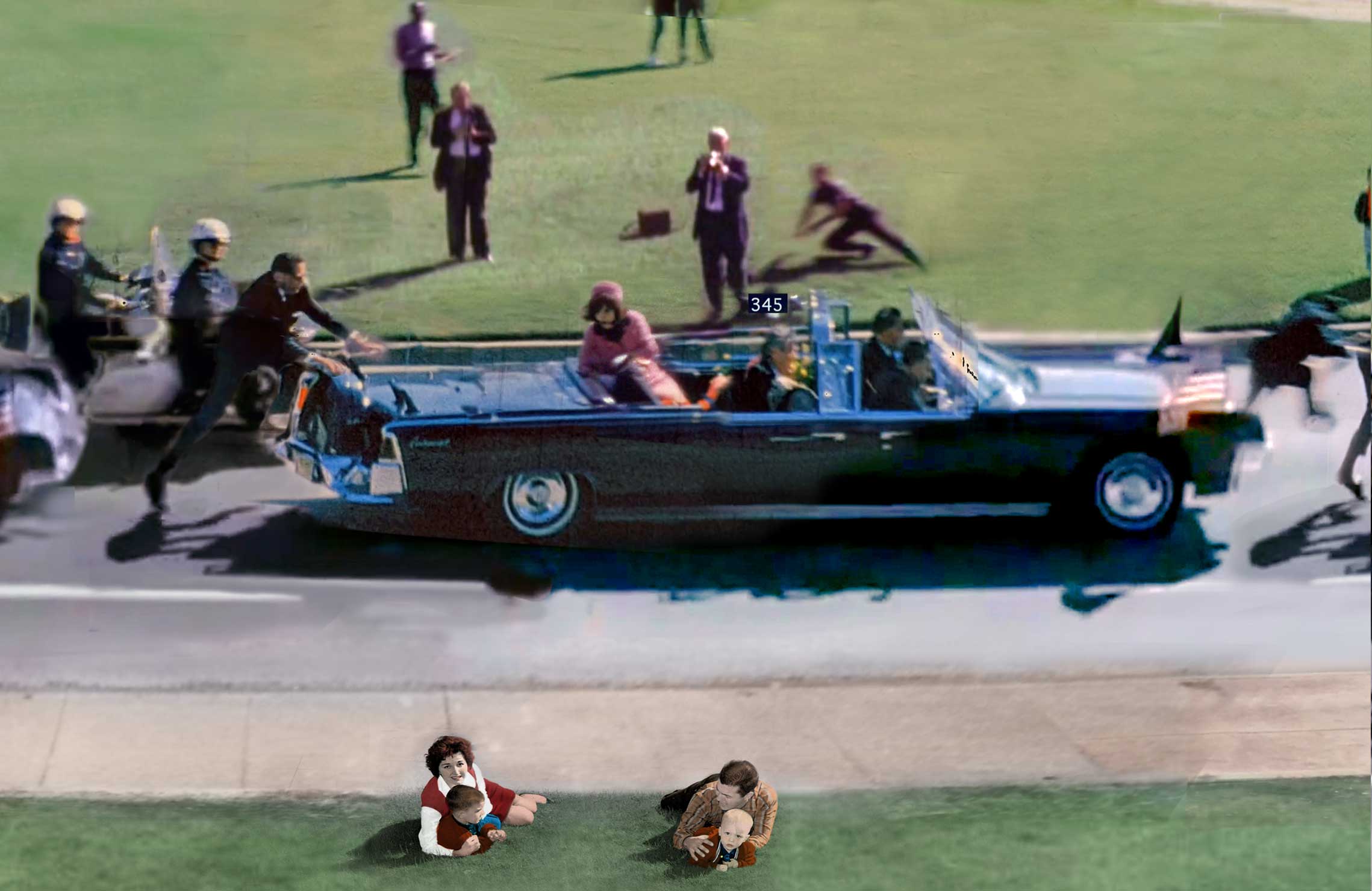 When one uses the events in others’ lives, it’s often not enough to “Change the names to protect the innocent” because if those events are people you know personally, you could hurt them by including them with little change if they recognize themselves, so we use the event, but bend many of the details. If it’s someone in the news, adhering too closely to exact details could get you sued for libel, unless it happens to be flattering and the person is eager for the notoriety. But even with details morphed to hide the When one uses the events in others’ lives, it’s often not enough to “Change the names to protect the innocent” because if those events are people you know personally, you could hurt them by including them with little change if they recognize themselves, so we use the event, but bend many of the details. If it’s someone in the news, adhering too closely to exact details could get you sued for libel, unless it happens to be flattering and the person is eager for the notoriety. But even with details morphed to hide the  origins, using real life events is what makes your novels come alive, because others have been there and your readers can relate. origins, using real life events is what makes your novels come alive, because others have been there and your readers can relate.
ZZ
When you use an event in the news, a big event that everyone was at least tangentially touched by, you reach emotions and reactions in a way totally made up events cannot. If your story took place on November twenty second in 1963 anyone over forty will immediately be sucked back to the emotions they felt on hearing of the assassination of President Kennedy. They will remember vividly the gut-wrenching disbelief and the way the world seemed to stop all around them. Include the horror of 9/11 and the twin towers falling in New York city and everyone over twenty-five feels that punch in the gut just as strongly as they did watching the replays over and over on television, and 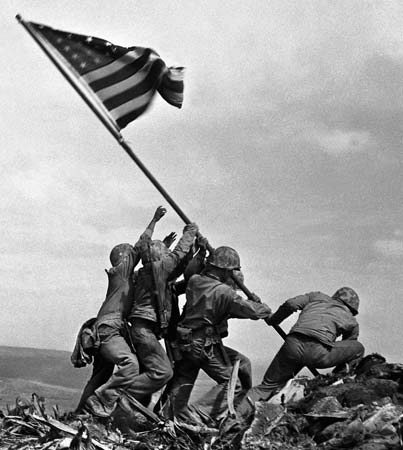 growing anger as the days stretched out looking for survivors. Before my time, I can only imagine what my parents felt hearing that the Japanese had attacked Pearl Harbor, or the jubilation on the day victory was ours, but most of us have studied enough history to understand them. We’ve seen photos of the Marines raising the flag on Iwo Jima and the sailor kissing a nurse in Times Square and we can almost “feel” the determination of those men planting the flag or jubilation of a nation on the day of victory. growing anger as the days stretched out looking for survivors. Before my time, I can only imagine what my parents felt hearing that the Japanese had attacked Pearl Harbor, or the jubilation on the day victory was ours, but most of us have studied enough history to understand them. We’ve seen photos of the Marines raising the flag on Iwo Jima and the sailor kissing a nurse in Times Square and we can almost “feel” the determination of those men planting the flag or jubilation of a nation on the day of victory.  Those are extreme events, but when they appear in a story, people feel sucked in emotionally, so it stands to reason that when you use real events for the basis of a plot line and you or someone you know personally experienced it, you have a good idea of the emotions that left the most lasting, meaningful memories for you that will affect your readers just as strongly. Those are extreme events, but when they appear in a story, people feel sucked in emotionally, so it stands to reason that when you use real events for the basis of a plot line and you or someone you know personally experienced it, you have a good idea of the emotions that left the most lasting, meaningful memories for you that will affect your readers just as strongly.
ZZ
Personal events and experiences used to create a world your reader can get lost in don’t have to be big ones either. Who hasn’t experienced the cool, distainful stare of a cat, or the eager  affection of a dog? Or how about the frustration of choosing the wrong line in the grocery store, having a flight delayed, missing your train/bus, being reprimanded by a teacher you adored, or the feeling of warm rain on your face or the romance of a full moon? I’ve used all those in my stories because I know exactly how they felt, and most of humanity affection of a dog? Or how about the frustration of choosing the wrong line in the grocery store, having a flight delayed, missing your train/bus, being reprimanded by a teacher you adored, or the feeling of warm rain on your face or the romance of a full moon? I’ve used all those in my stories because I know exactly how they felt, and most of humanity  does too so they can relate personally to your characters. I’ve also used the experience of giving birth to a baby, and the sublime joy of falling in love, the wrench of saying goodbye to my child when I took her off to college knowing my life as a mom was forever changed, and the pain of burying my husband. does too so they can relate personally to your characters. I’ve also used the experience of giving birth to a baby, and the sublime joy of falling in love, the wrench of saying goodbye to my child when I took her off to college knowing my life as a mom was forever changed, and the pain of burying my husband.
ZZ
 In my book THE CANDIDATE I used some of the experiences and memories that my brother shared with me of his year in Vietnam, being wounded, being surrounded and shot at by the enemy, holding a friend in his arms as the man drew his last breath. I didn’t experience any of that personally, but my brother’s willingness to share with me, and the tears he shed, made the story of Matt Steele come alive in ways it never would have without those real-life experiences. In WORRY STONE, I used my brother’s experiences on comin In my book THE CANDIDATE I used some of the experiences and memories that my brother shared with me of his year in Vietnam, being wounded, being surrounded and shot at by the enemy, holding a friend in his arms as the man drew his last breath. I didn’t experience any of that personally, but my brother’s willingness to share with me, and the tears he shed, made the story of Matt Steele come alive in ways it never would have without those real-life experiences. In WORRY STONE, I used my brother’s experiences on comin g home, thankful to be on US soil only to discover his fellow citizens hated everything he stood for as a soldier. The downward spiral Nathan Cameron fought against was informed partly because of the experiences of any soldier who has experienced war and come home to try to fit themselves back into civilian life, but more specifically, by the personal experiences my brother Scotty lived through. g home, thankful to be on US soil only to discover his fellow citizens hated everything he stood for as a soldier. The downward spiral Nathan Cameron fought against was informed partly because of the experiences of any soldier who has experienced war and come home to try to fit themselves back into civilian life, but more specifically, by the personal experiences my brother Scotty lived through.
ZZ
 In my book IAIN’S PLAID, I used both personal and historic events. I didn't actually fall into an abandoned foundation or hit my head and wake up in another century, but I did sail out to explore a real island were some of that history took place and where my book began. Then I used the backdrop of the British retreat to Boston in 1775 after the first shots of the Revolutionary War happened in Concord and Lexington for one my scenes. Most readers today will not have read much about that event though they may remember “the shot heard round the world.” Having read several first-person accounts of that retreat; both the British just trying to get back to the city unmolested and the colonists doing everything to harass them along the way, I was able to create a very real experience for my imaginary characters. In my book IAIN’S PLAID, I used both personal and historic events. I didn't actually fall into an abandoned foundation or hit my head and wake up in another century, but I did sail out to explore a real island were some of that history took place and where my book began. Then I used the backdrop of the British retreat to Boston in 1775 after the first shots of the Revolutionary War happened in Concord and Lexington for one my scenes. Most readers today will not have read much about that event though they may remember “the shot heard round the world.” Having read several first-person accounts of that retreat; both the British just trying to get back to the city unmolested and the colonists doing everything to harass them along the way, I was able to create a very real experience for my imaginary characters.
ZZ
 I have not used some of the more devastating events of my life in my stories . . . yet. But, I know what it feels like to go through a divorce. I know what it’s like to lose a spouse to cancer. I know how awful it is to watch a parent lose themselves to the ravages of Alzheimer’s. And I know the devastation of losing a grandchild and the heartbreak of not being able to fix this awful loss for your own child. When one experiences things that suck the deepest emotions to the surface where you can’t hide from them, they stay with you forever and should any of your imaginary characters have a similar experience, you can pour all that emotion into the writing and your reader will feel it, too. So, yes, I do use real experiences in my writing – it’s how I make my characters real for my readers. I have not used some of the more devastating events of my life in my stories . . . yet. But, I know what it feels like to go through a divorce. I know what it’s like to lose a spouse to cancer. I know how awful it is to watch a parent lose themselves to the ravages of Alzheimer’s. And I know the devastation of losing a grandchild and the heartbreak of not being able to fix this awful loss for your own child. When one experiences things that suck the deepest emotions to the surface where you can’t hide from them, they stay with you forever and should any of your imaginary characters have a similar experience, you can pour all that emotion into the writing and your reader will feel it, too. So, yes, I do use real experiences in my writing – it’s how I make my characters real for my readers.
ZZ
Why not hop over to these other bloggers and see how and why they’ve used real events in their imaginary stories:
 Victoria Chatham Victoria Chatham
Judith Copek
Dr. Bob Rich
Beverley Bateman
Margaret Fieland
Anne Stenhouse
A.J. Maguire
Diane Bator
Fiona McGier
Rhobin L Courtright
Connie Vines
Saturday, May 18 2019
May's Round Robin Blog Hop topic is: What would you like to your readers to know about
your novels and their purpose? This is a tough question to answer because it’s usually me wanting to know what my readers think about my novels? But that wasn’t the question so…
CCC
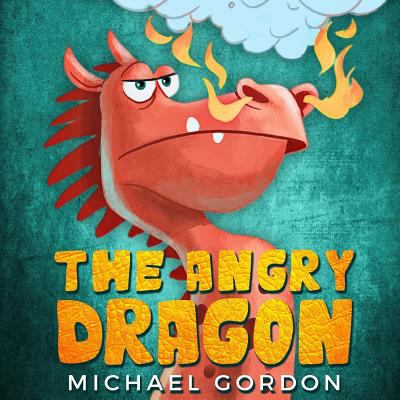 I have always loved to read. Not so much the first-grade readers “Fun with Dick and Jane that I learned to read with. It’s a wonder I stuck to it. Really. “See Dick. See Dick Run.” I am so grateful for hundreds of talented children’s authors since who’ve given my children and grandchildren age appropriate books that excite and inspire them to want to read. Authors like Dr. Seuss, E. B. White or Judy Bloom, and books like the Wonky Donkey by Craig Smith or The Angry Dragon by Michael Gordon. Reading should be an adventure anyone can take without ever leaving home and it doesn’t matter if you’re five with a limited vocabulary or 85 and housebound, or anywhere in between. I have always loved to read. Not so much the first-grade readers “Fun with Dick and Jane that I learned to read with. It’s a wonder I stuck to it. Really. “See Dick. See Dick Run.” I am so grateful for hundreds of talented children’s authors since who’ve given my children and grandchildren age appropriate books that excite and inspire them to want to read. Authors like Dr. Seuss, E. B. White or Judy Bloom, and books like the Wonky Donkey by Craig Smith or The Angry Dragon by Michael Gordon. Reading should be an adventure anyone can take without ever leaving home and it doesn’t matter if you’re five with a limited vocabulary or 85 and housebound, or anywhere in between.
CCC
 So, the purpose of my books, I suppose is to transport my readers to another place for a short while. And to meet new people doing things they might not have ever experienced themselves. I have one historical Iain’s Plaid that can take a reader back to the anxious months leading up to the shot heard round the world and the beginning of our country. For a few heart-stopping minutes, they can experience the patriots harassing the British soldiers retreating to Boston after the opening shots in Concord and Lexington. In my fictional characters, they find examples of the men and women who peopled that era so different from ours and have a glimpse into life in a different age. So, the purpose of my books, I suppose is to transport my readers to another place for a short while. And to meet new people doing things they might not have ever experienced themselves. I have one historical Iain’s Plaid that can take a reader back to the anxious months leading up to the shot heard round the world and the beginning of our country. For a few heart-stopping minutes, they can experience the patriots harassing the British soldiers retreating to Boston after the opening shots in Concord and Lexington. In my fictional characters, they find examples of the men and women who peopled that era so different from ours and have a glimpse into life in a different age.
CCC
 Sometimes a book will take you to a far-away place, or a very different culture. So far none of my books have done so, but I spent two years in the South Pacific in the Peace Corps and folk have suggested I need to write about that experience. And just maybe I will. For now, if you want a peek at that chapter in my life, visit my webpage featuring essays that were published in my hometown newspaper while I was away. https://www.skye-writer.com/peace_corps Sometimes a book will take you to a far-away place, or a very different culture. So far none of my books have done so, but I spent two years in the South Pacific in the Peace Corps and folk have suggested I need to write about that experience. And just maybe I will. For now, if you want a peek at that chapter in my life, visit my webpage featuring essays that were published in my hometown newspaper while I was away. https://www.skye-writer.com/peace_corps
CCC
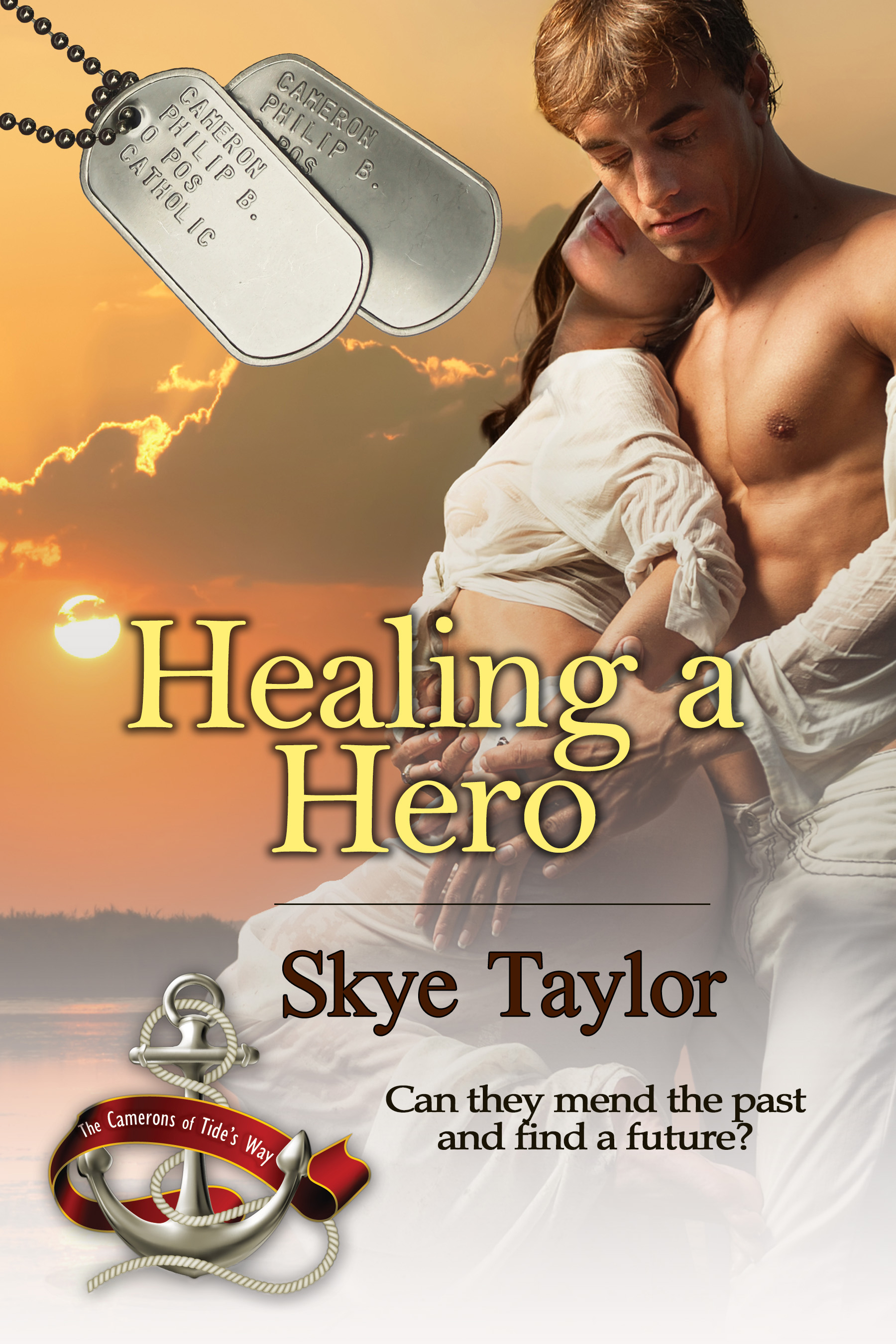 My contemporary romance series is set in a fictional coastal town in North Carolina. Lots of reasons to write that series. One was the desire to write a love story and in creating the Cameron family, there were four brothers and a sister, and of course their parents. Another thing that is important to me is respect and appreciation for the sacrifices our men and women in the military make every day so it turns out that two of the heroes and one heroine in that series are veterans or active duty military. I spent a lot of time talking to veterans to understand what their lives, relationships, service and struggles were and I hope that my characters have done them justice and just maybe give my readers a better appreciation. Our law enforcement and first responders deserve our respect as well so I’ve included two police officers and a fireman as main characters in that series. My contemporary romance series is set in a fictional coastal town in North Carolina. Lots of reasons to write that series. One was the desire to write a love story and in creating the Cameron family, there were four brothers and a sister, and of course their parents. Another thing that is important to me is respect and appreciation for the sacrifices our men and women in the military make every day so it turns out that two of the heroes and one heroine in that series are veterans or active duty military. I spent a lot of time talking to veterans to understand what their lives, relationships, service and struggles were and I hope that my characters have done them justice and just maybe give my readers a better appreciation. Our law enforcement and first responders deserve our respect as well so I’ve included two police officers and a fireman as main characters in that series.
CCC
Currently I’m working on a new series featuring a female deputy detective set in St Augustine. I’m hoping I will lead my readers on a merry chase to figure out who dun it, and while they’re there, they get to see bits of St Augustine, even if they’ve never been to the oldest European city in the US.
CCC
 That’s what I’d like my readers to know about my novels. What I hope to achieve is to give them a satisfying read. Whether they choose to sit in a rocker on a porch, curled up by a fire, waiting for a train, sitting on a beach, or tucked up in bed, I hope they have a good time, fall in love with my That’s what I’d like my readers to know about my novels. What I hope to achieve is to give them a satisfying read. Whether they choose to sit in a rocker on a porch, curled up by a fire, waiting for a train, sitting on a beach, or tucked up in bed, I hope they have a good time, fall in love with my  characters and wish there was more when they get to the last page. I love writing. Stories come to me from everywhere and I can’t imagine NOT writing. When I get to the end of my life (which I hope is very long) there’ll likely still be a story in progress. characters and wish there was more when they get to the last page. I love writing. Stories come to me from everywhere and I can’t imagine NOT writing. When I get to the end of my life (which I hope is very long) there’ll likely still be a story in progress.
CC
CCC
Check out the rest of our Round Robin authors and see why they write what they do and what they’d like you to know about their books.
CC
 Diane Bator http://dbator.blogspot.ca/ Diane Bator http://dbator.blogspot.ca/
Victoria Chatham http://www.victoriachatham.com
Beverley Bateman http://beverleybateman.blogspot.ca/
A.J. Maguire http://ajmaguire.wordpress.com/
Fiona McGier http://www.fionamcgier.com/
Dr. Bob Rich https://wp.me/p3Xihq-1BC
Connie Vines http://mizging.blogspot.com/
Rhobin Courtright http://www.rhobincourtright.com
Saturday, April 27 2019
 Our April Round Robin Topic: Does the season ever play a part in your setting? How do you think seasons affect setting & plot either physically or metaphorically? Our April Round Robin Topic: Does the season ever play a part in your setting? How do you think seasons affect setting & plot either physically or metaphorically?
@@
Setting is important in any story, whether fiction or non-fiction. Any author wants the reader to “feel” like they are in this place. If it’s a series set in the same place the reader gets to know it and feel comfortable there. So, if setting is so integral to our stories that they are as important as the characters, then it is just as important to include the seasons 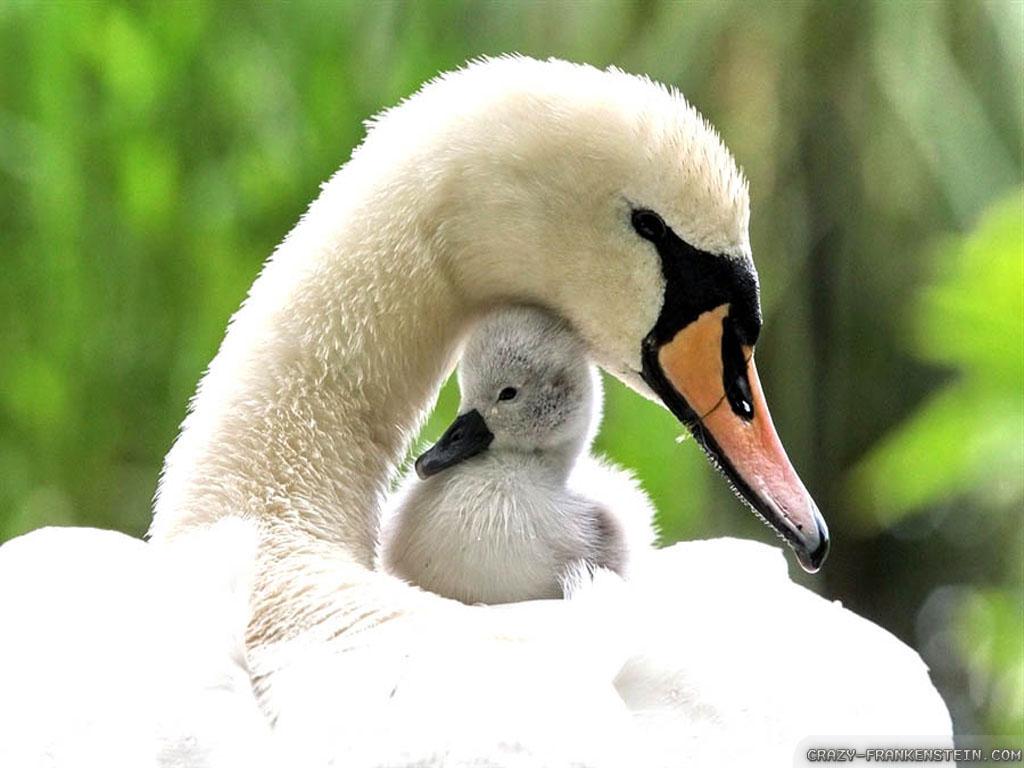 that will impact the plot and that setting both physically and metaphorically. that will impact the plot and that setting both physically and metaphorically.
@@
A metaphor is one word used to replace another. Seasons often do the same thing. Spring seems to suggest new beginnings, new growth, things coming back to life, whether it’s someone who’s mentally been in a bad place and is finally finding signs of hope – new beginnings, or just our climate emerging from winter with flowers blooming and trees leafing out in new robes of green. Although human babies are born year round, many animals give birth in the spring so their offspring have the warmth and fullness of summer to mature and be ready for the chill of fall and winter. Fall is often compared to  humans who’ve passed through the height of their life, not yet ready for winter and death, and maybe still robed in brilliance, but definitely not new or green. Summer is all about the fullness of life in general, from corn growing fat in the fields, to apples fleshing out on trees, with long days and lingering, warm evenings. And Winter is the death of all that glory. Bears and bees hibernate (although some species die and the old queen dies.) Birds fly south every fall, seeking a warmer climate to spend the winter. Deciduous trees shed their leaves and create a lacy lattice work of branches against the chilly winter blue sky. And somewhere in the winter of our lives, humans end their lives, either willingly, having lived a good, long life, or kicking and fighting for just one more day. Obviously humans die during all the seasons, not just from accidents and injury but of old age as well, but the metaphor of the winter of life remains. humans who’ve passed through the height of their life, not yet ready for winter and death, and maybe still robed in brilliance, but definitely not new or green. Summer is all about the fullness of life in general, from corn growing fat in the fields, to apples fleshing out on trees, with long days and lingering, warm evenings. And Winter is the death of all that glory. Bears and bees hibernate (although some species die and the old queen dies.) Birds fly south every fall, seeking a warmer climate to spend the winter. Deciduous trees shed their leaves and create a lacy lattice work of branches against the chilly winter blue sky. And somewhere in the winter of our lives, humans end their lives, either willingly, having lived a good, long life, or kicking and fighting for just one more day. Obviously humans die during all the seasons, not just from accidents and injury but of old age as well, but the metaphor of the winter of life remains.
@@
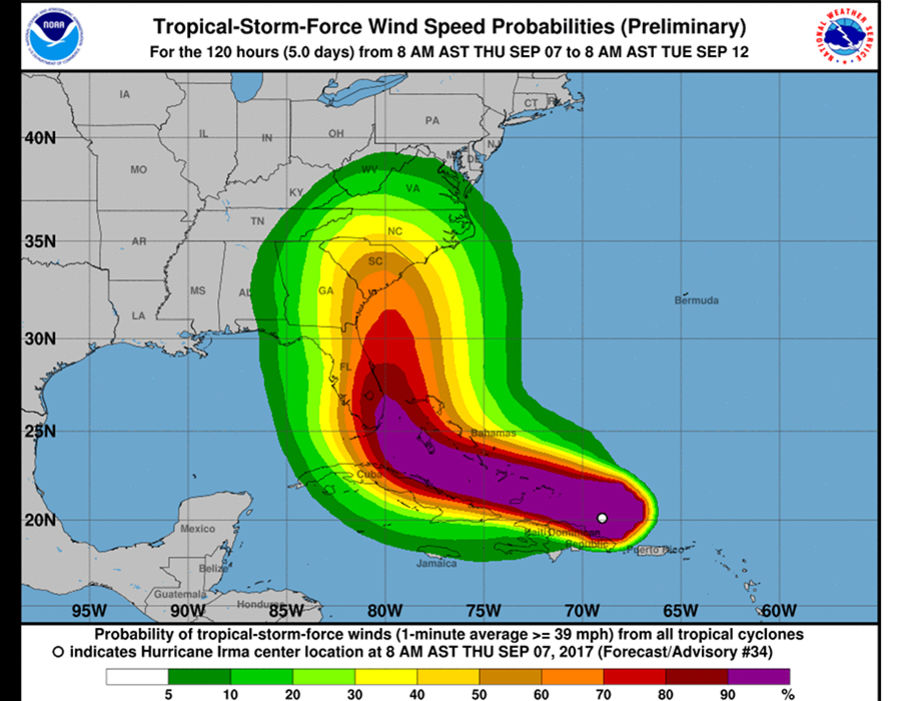 Physically, the effects of the seasons can make a big difference for your setting and can add any number of things to your plot. Perhaps you have set the stage for a story taking place where hurricanes can be expected each year. Your protagonist is busy, not only going about their regular life activities, but they are also dealing with whatever story crisis you’ve given them and now then the weathermen are talking about a hurricane coming. Hurricanes even have names and it can be days before they finally arrive. The possible dangers hang over everyone and the atmosphere is tense. Warnings about having drinking water and food and the Physically, the effects of the seasons can make a big difference for your setting and can add any number of things to your plot. Perhaps you have set the stage for a story taking place where hurricanes can be expected each year. Your protagonist is busy, not only going about their regular life activities, but they are also dealing with whatever story crisis you’ve given them and now then the weathermen are talking about a hurricane coming. Hurricanes even have names and it can be days before they finally arrive. The possible dangers hang over everyone and the atmosphere is tense. Warnings about having drinking water and food and the 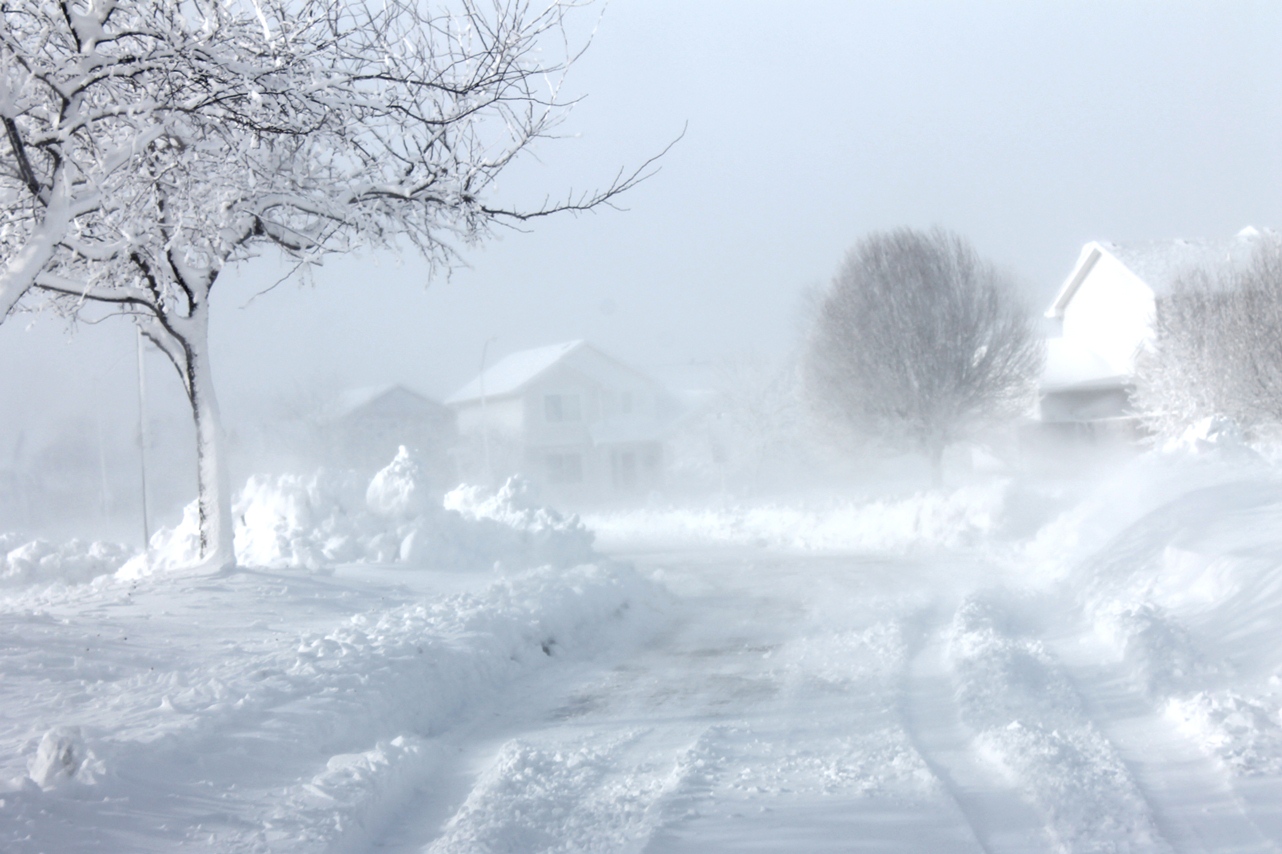 possibility of power outages grow ever more urgent as the hurricane approaches. They might be talking about mandatory evacuations and now your protagonist even has to take time to consider where they will go, and maybe what do to with their pets. Whatever else was already going on and demanding their attention is now in competition from the impending storm. Blizzards have a similar if less lengthy time frame. But blizzards and hurricanes are part of the climate and the season and can add tension to your story, ramping up the urgency for your characters. possibility of power outages grow ever more urgent as the hurricane approaches. They might be talking about mandatory evacuations and now your protagonist even has to take time to consider where they will go, and maybe what do to with their pets. Whatever else was already going on and demanding their attention is now in competition from the impending storm. Blizzards have a similar if less lengthy time frame. But blizzards and hurricanes are part of the climate and the season and can add tension to your story, ramping up the urgency for your characters.
@@
 Summer, as a season, seems to give birth to renewal stories. Even in families and lives with no real stress, summer is a time for vacations, getting away from our normal lives and putting one’s feet up to relax. It’s a popular setting for renewals of relationships as well. Just think how many books out there feature families that have been estranged or stressed who get away to places like Martha’s Vineyard or anywhere on a beach where it’s warm and away from the hustle of daily life where people have time and the space to rebuild the bonds that have been stretched and possibly even broken. Summer, as a season, seems to give birth to renewal stories. Even in families and lives with no real stress, summer is a time for vacations, getting away from our normal lives and putting one’s feet up to relax. It’s a popular setting for renewals of relationships as well. Just think how many books out there feature families that have been estranged or stressed who get away to places like Martha’s Vineyard or anywhere on a beach where it’s warm and away from the hustle of daily life where people have time and the space to rebuild the bonds that have been stretched and possibly even broken.
@@
 The Hallmark channel has built an entire following on the theme of Christmas, as a season – as opposed to a religious holiday. It is a season with traditions we can all relate to, so it helps the watcher to feel at home in that setting. Fall and Halloween bring an entirely different vibe to some stories, as does Easter with the theme of new beginnings and redemption. So, seasons can either add to the tension already building for the characters in our stories, or they can be a well understood setting that invites the reader to come right on in with their mind already in the spirit of the season, so to speak. The Hallmark channel has built an entire following on the theme of Christmas, as a season – as opposed to a religious holiday. It is a season with traditions we can all relate to, so it helps the watcher to feel at home in that setting. Fall and Halloween bring an entirely different vibe to some stories, as does Easter with the theme of new beginnings and redemption. So, seasons can either add to the tension already building for the characters in our stories, or they can be a well understood setting that invites the reader to come right on in with their mind already in the spirit of the season, so to speak.
@@
 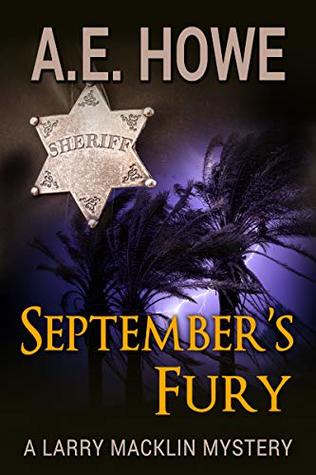 I recently read a book by A.E. Howe set in the Florida panhandle. His hero, Larry Macklin, a sheriff’s deputy, is desperately working to track down a killer when a hurricane moves in from the gulf. There is a killer on the loose, but Macklin is forced to put that aside to become involved in emergency management. The season that brings hurricanes plays a crucial role in the plotting of that story and its outcome. I recently read a book by A.E. Howe set in the Florida panhandle. His hero, Larry Macklin, a sheriff’s deputy, is desperately working to track down a killer when a hurricane moves in from the gulf. There is a killer on the loose, but Macklin is forced to put that aside to become involved in emergency management. The season that brings hurricanes plays a crucial role in the plotting of that story and its outcome.
@@
But even when seasons aren’t used to add tension, I think any story that ignores the season and the climate leaves the reader with a very flat and uninteresting setting. Both seasonal weather and seasonal holidays pull a reader into the story, let them become a part of the action because we can all relate. We can relax in the heat and laid back atmosphere of summer, we can shiver our way through a bitter winter with our heroes and  heroines, be on the edge our seats in fire season in California, worrying about every spark that might set off disaster. Readers can celebrate familiar holidays with your characters as they set aside the normal. heroines, be on the edge our seats in fire season in California, worrying about every spark that might set off disaster. Readers can celebrate familiar holidays with your characters as they set aside the normal.
@@
 In the first book of my series, Falling For Zoe, my hero Jake’s backstory includes a young woman giving birth way before her time and him holding an infant too tiny to survive in his hands for just a few moments. Imagine how scared and unprepared Jake feels when the woman he loves goes into labor early with a hurricane raging, cut off and unable to even call for help due to downed lines and trees. Without that seasonal hazard there would have been far less stress, and my hero wouldn’t have had to dig deep inside himself for the courage to face his demons and do what had to be done. In the first book of my series, Falling For Zoe, my hero Jake’s backstory includes a young woman giving birth way before her time and him holding an infant too tiny to survive in his hands for just a few moments. Imagine how scared and unprepared Jake feels when the woman he loves goes into labor early with a hurricane raging, cut off and unable to even call for help due to downed lines and trees. Without that seasonal hazard there would have been far less stress, and my hero wouldn’t have had to dig deep inside himself for the courage to face his demons and do what had to be done.
@@
 Take a moment and think of your favorite book(s) and ask yourself, ‘How did that author use seasons to enhance their story?’ And ‘Would it have changed the story had the season not been included in the plot?’ Then ask yourself, what would the inclusion of seasons do to enhance my own work in progress? How can I use seasons to add tension or color, or ambiance that nothing else can provide? And while you’re at it, pop on over to these other sites and see how these authors use seasons in their writing. Take a moment and think of your favorite book(s) and ask yourself, ‘How did that author use seasons to enhance their story?’ And ‘Would it have changed the story had the season not been included in the plot?’ Then ask yourself, what would the inclusion of seasons do to enhance my own work in progress? How can I use seasons to add tension or color, or ambiance that nothing else can provide? And while you’re at it, pop on over to these other sites and see how these authors use seasons in their writing.
@@
 Victoria Chatham Victoria Chatham
Diane Bator
Judith Copek
Beverley Bateman
Connie Vines
Helena Fairfax
Rhobin L Courtright
Dr. Bob Rich
Friday, March 29 2019
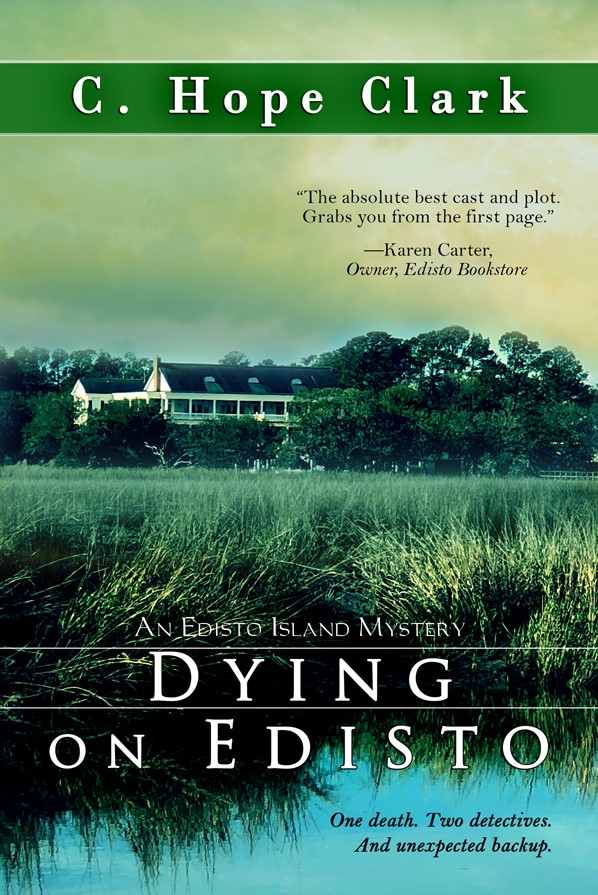 One death. Two detectives. And unexpected backup. One death. Two detectives. And unexpected backup.
A Callie Morgan and Carolina Slade crossover, standalone mystery!
Q
When a renowned—and now dead—travel blogger washes ashore on the banks of Indigo Plantation, Edisto Beach Police Chief Callie Morgan agrees to head the investigation as a favor to the county sheriff, whose reasons are as questionable as the death itself. When death turns to murder and a watchdog from the county makes her investigation difficult, Callie reluctantly turns to Carolina Slade and Wayne Largo, vacationing agents with the Department of Agriculture.
Q
Because poison is growing on this plantation and someone knows how to use it well.
Q
Murder, corruption, and page-turning intrigue are usually the elements that shine the brightest in mysteries like Hope Clark’s latest Dying on Edisto. But it’s the characters that bring a vivid literary element to Clark’s prose and create a strong emotional response to their tangled lives. The scenic town of Edisto Beach is peopled with a modern-day pirate claiming to be a descendent of Blackbeard, a degenerate travel blogger, a yoga teacher who drives a baby blue vintage Benz convertible, a mixed race waitress and her matriarchal grandmother, and a whole slew of wealthy and crooked good ole boys. Leading the cast are two strong female protagonists—a police chief and an investigator with the Department of Agriculture. Did someone say hemlock? —Susan Cushman, author of Cherry Bomb and editor of Southern Writers on Writing
QQ
Here at Blogging by the Sea we are big fans of the Edisto series and the Carolina Slade mysteries, so we are excited to have both Chief Callie Morgan from Edisto Island and Carolina Slade with us today. One lady has a badge and the other doesn’t but somehow they both manage to find themselves up to their shoulders in mystery and dead bodies- always when they least expect it. If you’ve enjoyed their escapades join me in welcoming them.
QQQQQQ@@
 SKYE: Chief Morgan, I understand you grew up in South Carolina and spent much of your time on Edisto in the beach house you now call home. How did you end up working as a cop on the Boston PD in New England? SKYE: Chief Morgan, I understand you grew up in South Carolina and spent much of your time on Edisto in the beach house you now call home. How did you end up working as a cop on the Boston PD in New England?
CALLIE: Youthful defiance maybe? My father was a politician, my mother a social gadfly in a town where everyone knew my family’s business. I wanted none of that life. But I guess public service was in my blood, because I earned a Criminal Justice degree from the University of South Carolina. That’s where I met my husband John Morgan, and I followed him back to his hometown of Boston, where nobody would know my name. He was a US Marshall. I worked for Boston PD, ultimately becoming a detective.
SKYE: Do you miss the hustle and pace of both life and work in a city like Boston? By contrast Edisto must seem pretty laid back and quiet.
CALLIE: In some ways I do. Places to eat, lots of interesting people, the Red Sox (though Boston doesn’t do football like the South, that’s for sure), but I don’t miss the crime rate. At the time I lived there, I enjoyed the busy-ness of it all, and my job kept me hopping overtime most days. But the seedy underside of that city killed my husband, which soured my desire to remain there. Everything I liked is now tainted. Long story, but I was a mess when I left there with a teenager in tow. My father forced me to Edisto in his subtle way, telling me to get my head on straight. He knew what he was doing. That sand and water are a part of me now. Do I use all my training? No. But I do catch things earlier than the force used to, because of my past in Boston. Guess I have the best of both worlds in me now.
SKYE: Ms. Slade, until recently I think the two of you had not met. Certainly, your line of work would not normally cross paths with the police chief on Edisto Island. How did you get involved in the work you do? And how is it, you seem to trip over mysteries no one else ever suspects?
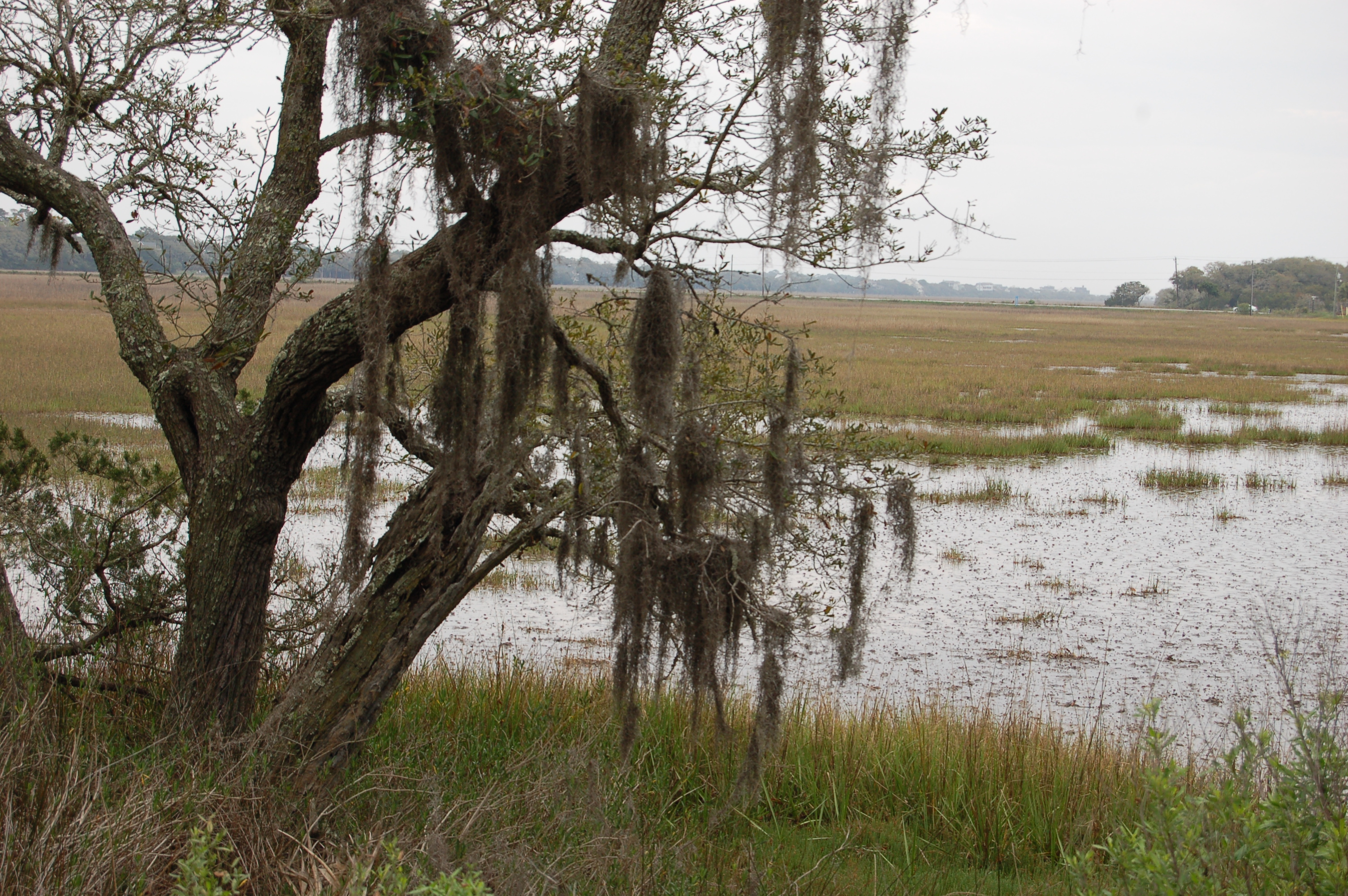 SLADE: My grandparents operated a cotton farm in Mississippi, and I loved visiting them each summer. Later I gravitated to Clemson (Go Tigers! National Championship 2001, 2016, and 2018!) and got a degree in agriculture. Of course, that meant USDA employment. But it wasn’t until a farmer offered me a bribe did I get a taste of investigations. Like Callie, I have a long story, but mine was about solving an investigation without losing my job, my life, heck, even my kids got kidnapped. When I nailed that case I was hooked, and Agriculture created a job for me to investigate all the time. Bummer! LOL Trip over mysteries, you say? LOL again. Guess you could call it that. After my indoctrination into the world of federal agents and the criminal element, I don’t trust so easily anymore. I see things, maybe ponder stuff deeper. Hell, I don’t know. My partner Wayne is a federal agent, and he can’t put a finger on it either. (Callie laughing.) I come out okay in the end, which I hope is a long-time habit. The alternative might be a little scary, so guess I like to think I’ll always win. Makes me misstep at times, but I land on my feet because I give myself no other option. SLADE: My grandparents operated a cotton farm in Mississippi, and I loved visiting them each summer. Later I gravitated to Clemson (Go Tigers! National Championship 2001, 2016, and 2018!) and got a degree in agriculture. Of course, that meant USDA employment. But it wasn’t until a farmer offered me a bribe did I get a taste of investigations. Like Callie, I have a long story, but mine was about solving an investigation without losing my job, my life, heck, even my kids got kidnapped. When I nailed that case I was hooked, and Agriculture created a job for me to investigate all the time. Bummer! LOL Trip over mysteries, you say? LOL again. Guess you could call it that. After my indoctrination into the world of federal agents and the criminal element, I don’t trust so easily anymore. I see things, maybe ponder stuff deeper. Hell, I don’t know. My partner Wayne is a federal agent, and he can’t put a finger on it either. (Callie laughing.) I come out okay in the end, which I hope is a long-time habit. The alternative might be a little scary, so guess I like to think I’ll always win. Makes me misstep at times, but I land on my feet because I give myself no other option.
SKYE: Ms. Slade, I’m curious – I never thought much about the Department of Agriculture or what it does, but I’d never have guessed it would present that kind of danger. The kind that would get your kids kidnapped. You must have been terrified, never mind what they went through. I hope they’ve adjusted and are doing okay now. But tell me, what kinds of things do you investigate?
SLADE: If I had a dime for every time somebody said that about Ag. Listen. Agriculture at the federal level doles out a ton of bucks. As much as VA. More than Education and Transportation. Wherever there’s money, there’s crime, and if you don’t understand the rural community, you don’t know how to spot the scams. I can spot things my agent friend Wayne never thought of. Farmers faking what they bought with loans. Taking government subsidies and using them for personal use. . . cars, vacation, or if you want to really get funky with it, drugs, bootleg items, firearms, and equity scams. Money’s money, honey, and it attracts such wicked people.
 SKYE: As I mentioned earlier, your worlds are very different: Different place, different job. How did you two ladies meet? SKYE: As I mentioned earlier, your worlds are very different: Different place, different job. How did you two ladies meet?
CALLIE: Oh Lord, that’s a story.
SLADE: (Arms up to the side, shrugging.) Hey, I just went on vacation with Wayne. Just happened that we chose Edisto Island. I grew up an hour away, and used to go to that beach as a kid.
CALLIE: You just gave away that Wayne’s more than your partner, silly. She does that, you know. Talks and talks until she slips up. We met during a murder case. We had a new B&B on the island, and Miss Priss here came down to learn how to weave baskets. (Laughing.)
SLADE: Laugh all you want. I found the body.
CALLIE: You didn’t find anything. You stumbled, then stumbled again. Destroyed that crime scene to smithereens.
SLADE: We solved the case, didn’t we?
CALLIE: (Smiling at her friend.) That we did.
SKYE: Is there anything either of you ladies would like your fans to know about your newest adventure?
SLADE: Well, it turned into the weirdest vacation I ever had. I decided I don’t want to live within ten miles of salt water and will never go in a boat again.
CALLIE: And I learned there’s stuff that’ll kill you in the woods, thanks to this lady who gets off on all things green. An agriculture investigator. Who’d have thought? I mean, what kind of law is broken with farmers?
SLADE: Way more than you know, girl. The country isn’t just populated with dumb farmers in straw hats like everyone thinks. So I earned some respect, huh? Me and my plant knowledge?
CALLIE: You did, Slade. Opened my eyes big time.
SLADE: And I wondered what the hell (excuse my French) the beach police does more than stop golf carts and deal with drunks. Guess there are some skills there, too.
CALLIE: (Smiling.)
SKYE: Are there things going on in your lives that never gets mentioned in any of the stories that you’d like to share?
SLADE: What else is there? My world is an open book. Just ask anyone who knows me.
CALLIE: And my life is on a need to know basis. What you don’t learn in the stories doesn’t need to be said.
SLADE: (Watching Callie introspectively.) I still need to get you to loosen up some more, girl.
SKYE: I want to thank you both for taking time out of your busy lives to talk to us today. We can all hope that you both have a peaceful summer without any dead bodies showing up or farmers getting up to mischief. But I have to admit that I am looking forward to your next adventure, whatever it might be, or wherever it might take you. Thank you Callie and Slade for joining us today.
WQQ
If my readers enjoyed this interview, be sure to look up the books you haven’t read and get caught up. Dying on Edisto features both Ms Carolina Slade and Chief Callie Morgan and is available at: Amazon, Barnes & Noble, Goodreads
QQ
QQ
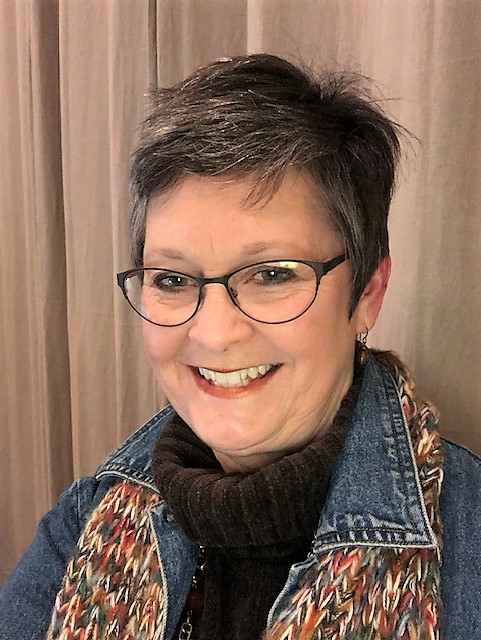 C. Hope Clark’s latest release is Dying on Edisto, Book 5 of the Edisto Island Mysteries. She has also authored the award-winning Carolina Slade mystery series and is working on another. She founded FundsforWriters.com, selected by Writer’s Digest for its 101 Best Websites for Writers for 18 years. Her newsletter reaches 35,000 readers. www.fundsforwriters.com / www.chopeclark.com / http://chopeclark.com/edisto-island/ C. Hope Clark’s latest release is Dying on Edisto, Book 5 of the Edisto Island Mysteries. She has also authored the award-winning Carolina Slade mystery series and is working on another. She founded FundsforWriters.com, selected by Writer’s Digest for its 101 Best Websites for Writers for 18 years. Her newsletter reaches 35,000 readers. www.fundsforwriters.com / www.chopeclark.com / http://chopeclark.com/edisto-island/
QQ
Q
Q
Q
Q
Q
Q
Q
Q
Q
Q
Q
Reviews for Dying on Edisto:
Having read and very much enjoyed both the Carolina Slade and Edisto series, I was eager to see where Ms. Clark would go when these two very different ladies met and I was not disappointed. Her use of point of view to see Callie Jean Morgan through the eyes of Carolina Slade and vice versa added spice to the story as we got to see both women in very different ways than we had before in their individual series. The story itself was well plotted and full of twists and turns with an ending I never saw coming. It was also fun to see Wayne, Slade’s “Lawman” as people other than Slade see him. He’s such an interesting character and we got to see more of his personality, and charm in Dying on Edisto. Every pivotal character in this story was so well drawn and interesting I felt like I was on the case with Callie and Slade and I didn’t want to put the book down. Snap this book up as soon as it is out and you won’t be disappointed. Skye Taylor, Author of the Camerons of Tide's Way series.
W
Murder, corruption, and page-turning intrigue are usually the elements that shine the brightest in mysteries like Hope Clark’s latest Dying on Edisto. But it’s the characters that bring a vivid literary element to Clark’s prose and create a strong emotional response to their tangled lives. The scenic town of Edisto Beach is peopled with a modern-day pirate claiming to be a descendent of Blackbeard, a degenerate travel blogger, a yoga teacher who drives a baby blue vintage Benz convertible, a mixed race waitress and her matriarchal grandmother, and a whole slew of wealthy and crooked good ole boys. Leading the cast are two strong female protagonists—a police chief and an investigator with the Department of Agriculture. Did someone say hemlock? —Susan Cushman, author of Cherry Bomb and editor of Southern Writers on Writing
W
"In a plot as complicated as the numerous waterways that create Edisto Island in South Carolina, C. Hope Clark has combined the characters from her two series to solve the murder of a renowned travel blogger. They mystery requires all of their detective skills and blends the two mystery worlds in a page-turning standalone. The story opens with a floater and progresses with edge-of-your-seat action. Prepare to be absorbed by Clark's crisp writing and compelling storytelling. This is one you don't want to miss!"--- Carolyn Haines is the USA Today bestselling author of three mystery series. She is the author of over 80 books and has received numerous writing awards.
W
Hope Clark converges her sleuths, Carolina and Callie Jean, on Edisto Island for the finale, Dying on Edisto, concluding her two murder mystery series. Slews of fans always awaited these highly addictive and superbly penned novels - grabbing you from the first page and not letting go until the last. A pristine, sleeper sea island, two determined masters of law who butt heads, a mystery corpse from Atlantic waters, a few idiosyncrasies along the way - the absolute best cast and plot for an intense coastal thriller. ~Karen Carter, Owner, Edisto Bookstore
Saturday, March 23 2019
Our March Round Robin Blog asks the questions -- How do you self-edit your books before submitting or publishing?
2
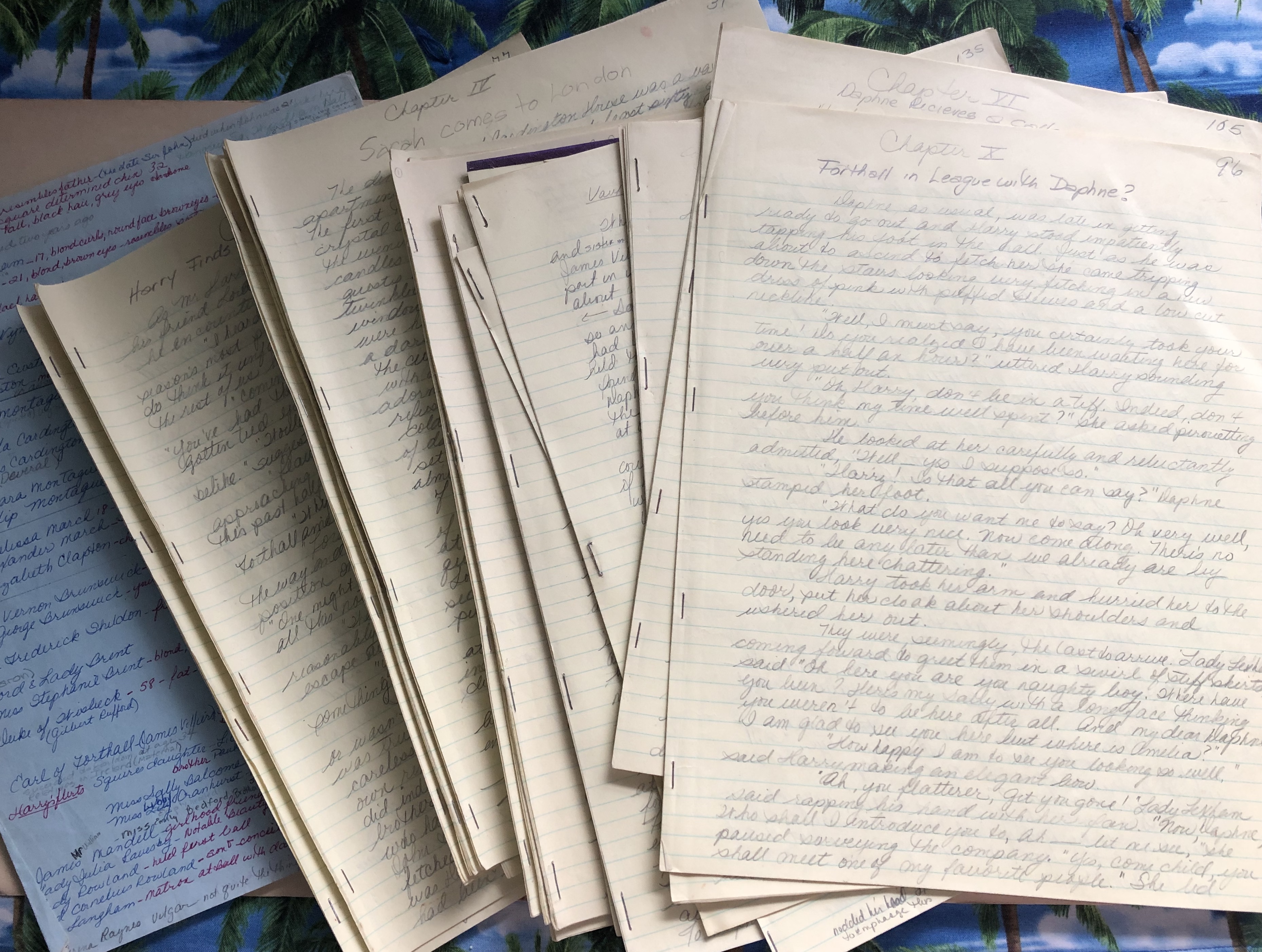 Back when I first began writing, it was on yellow lined paper with a pencil. Editing was done with the eraser and often with lots of notes in the margin, so many notes the document became difficult to read. Thankfully since then computers have arrived on the scene and they make it so much easier to edit, however one goes about it. Back when I first began writing, it was on yellow lined paper with a pencil. Editing was done with the eraser and often with lots of notes in the margin, so many notes the document became difficult to read. Thankfully since then computers have arrived on the scene and they make it so much easier to edit, however one goes about it.
2
The other thing I did when I first began was to just write, and write, and write – NO editing at all. As another writer friend of mine often says, “The first draft is supposed to suck.” She’s a retired sailor, thus the colorful expression. As she and many other experienced authors will say, you can’t edit something that isn’t written and some folk, beginners especially, tend to second guess everything, get caught up in finding just the right word, or going back to fix something and end up stalling out with nothing ready to read. I’ve morphed from that beginning of writing everything that came into my head to a writer who tends to do some editing as I go, but save the big stuff for after the book is done. One of the reasons for this is I have a critique partner who reads each chapter as it is written and sends it back to me with comments and critique, and I usually fix those things before I dive into the next chapter. The other reason is that, even without a critique to consider, if I’ve been away from my characters and the action since I put the computer to sleep last night, or even longer, like several days, my mind and 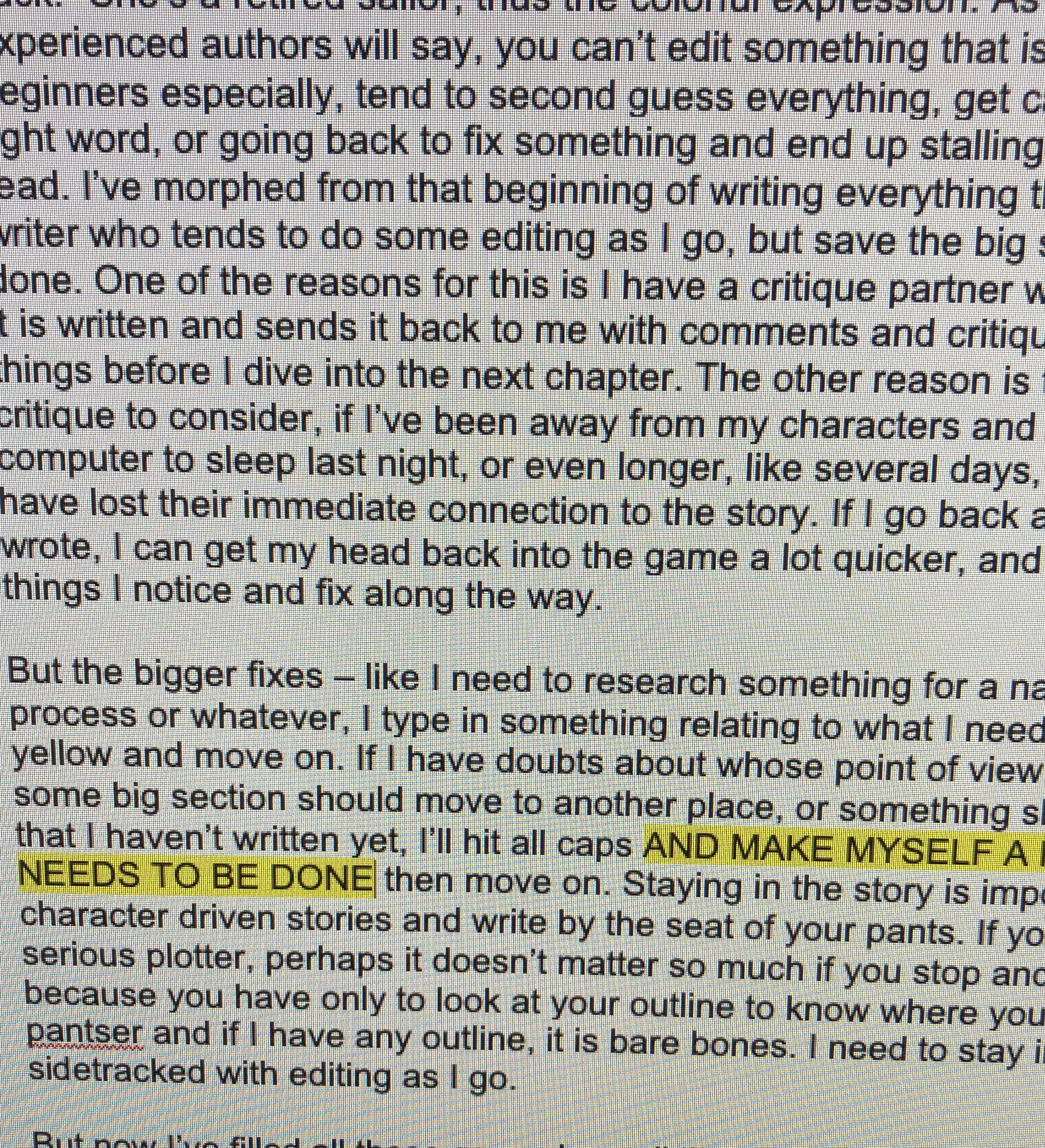 emotions have lost their immediate connection to the story. If I go back and read the last chapter I wrote, I can get my head back into the game a lot quicker, and there are always little things I notice and fix along the way. emotions have lost their immediate connection to the story. If I go back and read the last chapter I wrote, I can get my head back into the game a lot quicker, and there are always little things I notice and fix along the way.
2
But the bigger fixes – like I need to research something for a name or a title or a process or whatever, I type in something relating to what I need, highlight it with bright yellow and move on. If I have doubts about whose point of view I should be in, or if some big section should move to another place, or something should happen here first that I haven’t written yet, I’ll hit all caps AND MAKE MYSELF A NOTE ABOUT WHAT NEEDS TO BE FIXED OR CHANGED then move on. Staying in the story is important when you write character driven stories and write by the seat of your pants. If you happen to be a serious plotter, perhaps it doesn’t matter so much if you stop and fix big issues, because you have only to look at your outline to  know where you’re going next. I’m a pantser and if I have any outline, it is bare bones. I need to stay in the story and not get sidetracked with editing as I go. know where you’re going next. I’m a pantser and if I have any outline, it is bare bones. I need to stay in the story and not get sidetracked with editing as I go.
2
But now I’ve filled all those gaps, done all the research, figured out the POV and made the section consistent, and those ALL CAP places dealt with – NOW it’s time for my first major revision and edit. My personal method  for this is to print the entire manuscript out, punch it and put it in a big binder. Then I go find a comfortable chair and settle in. I have post-its at hand, sometimes in more than one color and a pen. If it happens to be romance, I have blue and pink flags and I go through the first time marking each POV section with a blue flag for my hero and a pink one for my heroine. Then, just by glancing at the edges I can easily see if they are both well represented throughout. I have one book with five points of view so there were five colored flags. Then I read just those sections for one POV character, skipping over the others to see if that character is acting and thinking consistently and that I haven’t missed any important changes in their attitude. And finally I read the whole thing through as if I were a beta reader, leaving notes on post-its along for this is to print the entire manuscript out, punch it and put it in a big binder. Then I go find a comfortable chair and settle in. I have post-its at hand, sometimes in more than one color and a pen. If it happens to be romance, I have blue and pink flags and I go through the first time marking each POV section with a blue flag for my hero and a pink one for my heroine. Then, just by glancing at the edges I can easily see if they are both well represented throughout. I have one book with five points of view so there were five colored flags. Then I read just those sections for one POV character, skipping over the others to see if that character is acting and thinking consistently and that I haven’t missed any important changes in their attitude. And finally I read the whole thing through as if I were a beta reader, leaving notes on post-its along 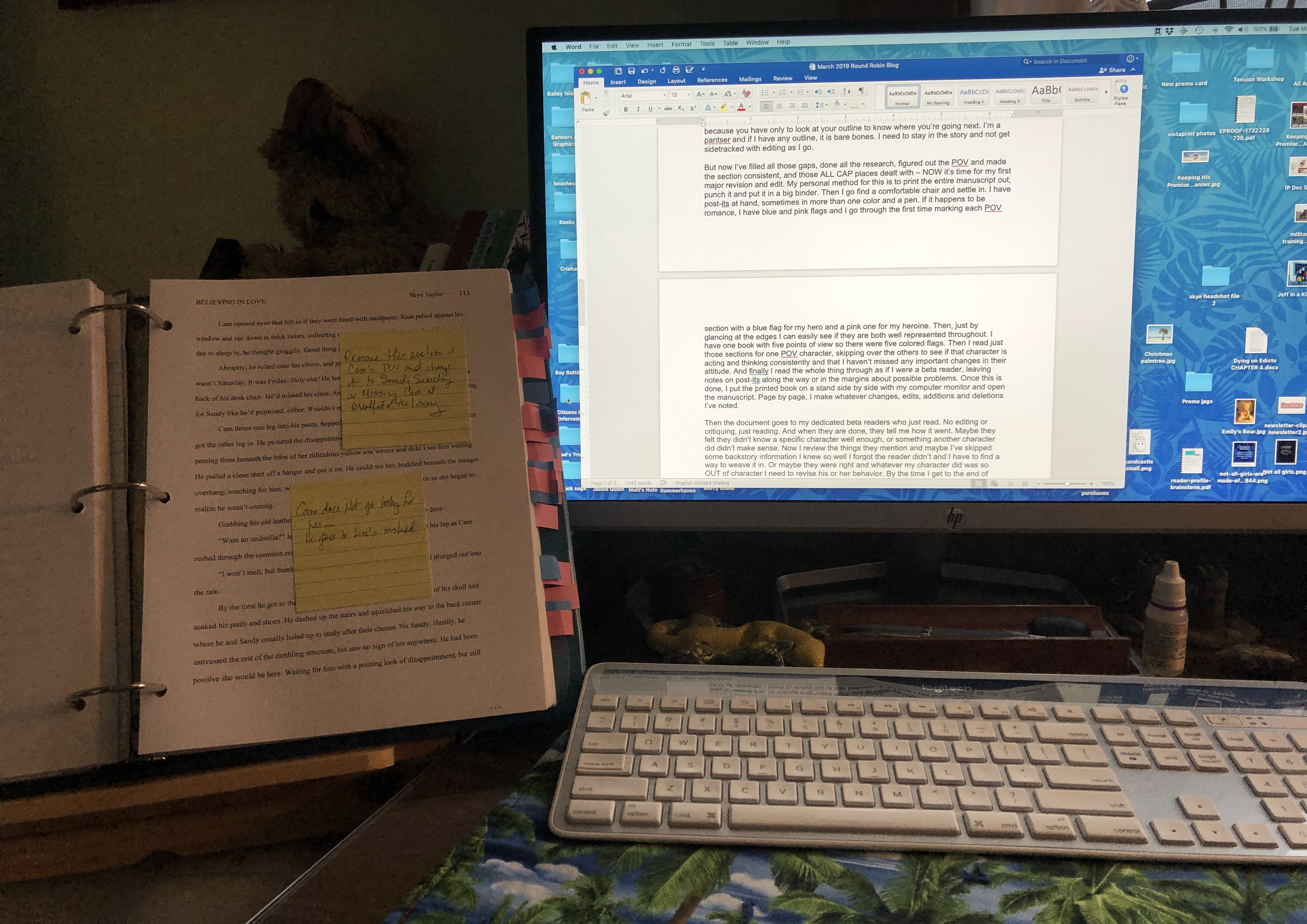 the way or in the margins about possible problems. Once this is done, I put the printed book on a stand side by side with my computer monitor and open the manuscript. Page by page, I make whatever changes, edits, additions and deletions I’ve noted. the way or in the margins about possible problems. Once this is done, I put the printed book on a stand side by side with my computer monitor and open the manuscript. Page by page, I make whatever changes, edits, additions and deletions I’ve noted.
2
Then the document goes to my dedicated beta readers who just read. No editing or critiquing, just reading. And when they are done, they tell me how it went. Maybe they felt they didn’t know a specific character well enough, or something another character did didn’t make sense. Now I review the things they mention and maybe I’ve skipped some backstory information I knew so well I forgot the reader didn’t and I have to find a way to weave it in. Or maybe they were right and whatever my character did was so OUT of character I need to revise his or her behavior. By the time I get to the end of this, it’s time to have a copy editor or my acquiring editor at my publisher put eyes on it. I can fix whatever they find later, but my eyes have been looking at it for so long I no longer see any problems even when they are staring me in the face.
2
 So, that’s my process. My advice to other authors who ask is to be open to honest critique. A second pair of eyes sees things you no longer see and might have ideas or thoughts that strengthen your story. It is your story so you are also free to ignore advice, but at least listen and give the thoughts a fair hearing before dismissing. And enjoy the ride, wherever it takes you. So, that’s my process. My advice to other authors who ask is to be open to honest critique. A second pair of eyes sees things you no longer see and might have ideas or thoughts that strengthen your story. It is your story so you are also free to ignore advice, but at least listen and give the thoughts a fair hearing before dismissing. And enjoy the ride, wherever it takes you.
2
 Check out these authors and see how they approach this must do task. Check out these authors and see how they approach this must do task.
Diane Bator
Beverley Bateman
Connie Vines
Anne Stenhouse
A.J. Maguire
Dr. Bob Rich
Victoria Chatham
Helena Fairfax
Judith Copek
Rhobin L Courtright
Saturday, February 16 2019
Round Robin Blog Hop - February 2019 Love, sex, & relationships in books. What seems acceptable, is it now necessary, and what is going too far.
@
 Relationships, whether romantic, adversarial, work related, family or friendship are what life is all about, so in my opinion, any book that does not include them is as flat as if a steam roller ran them down. One of the reasons I enjoyed (before they became so repetitive) the books by W.E.B.Griffin was the diverse relationships he showcased. His earliest books were all about men at war, and then policework – mostly a man’s world, but his characters had wives and sweethearts, daughters and sisters so there were bits of romance tucked into the storie. He also included the whole gamut of interactions between officers and non-coms, civilians, politicians, bosses and subordinates. Some were supportive, some not so much. Some added significant tension to the stories themselves. As the series went on, the relationships developed and grew, and that’s why I loved his books. Relationships, whether romantic, adversarial, work related, family or friendship are what life is all about, so in my opinion, any book that does not include them is as flat as if a steam roller ran them down. One of the reasons I enjoyed (before they became so repetitive) the books by W.E.B.Griffin was the diverse relationships he showcased. His earliest books were all about men at war, and then policework – mostly a man’s world, but his characters had wives and sweethearts, daughters and sisters so there were bits of romance tucked into the storie. He also included the whole gamut of interactions between officers and non-coms, civilians, politicians, bosses and subordinates. Some were supportive, some not so much. Some added significant tension to the stories themselves. As the series went on, the relationships developed and grew, and that’s why I loved his books.
@
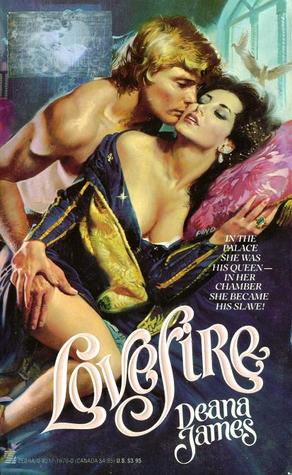 Once upon a time romances, in spite of being called bodice rippers with suggestive covers, never showed the actual act of lovemaking. As a young woman, I read and loved Georgette Heyer. Her characters were complex and compelling, and I devoured her stories, but I missed that culmination of the falling in love and making love. Today some books, especially those in the clean read/inspirational genre still stop at the bedroom door, but at the other end of the spectrum, there are books that are little more than a thinly plotted excuse to see how many ways one can describe inserting tab A into slot B. I read neither. I’m not a prude, by any stretch of the imagination, but reading two hundred or more pages with two people, panting and sweating and pawing at each other and little else is a waste of my time and money. Emotions, conflicts, life dreams, life’s wounds, and so much more make our characters come alive and add color to a story, making the outcome a compelling read. Letting the reader follow the couple who have fallen in love into the bedroom is like the icing on the cake. The cake was tasty on its own, but the icing added flavor and spice and lets the reader enjoy the entire experience of falling in love. Once upon a time romances, in spite of being called bodice rippers with suggestive covers, never showed the actual act of lovemaking. As a young woman, I read and loved Georgette Heyer. Her characters were complex and compelling, and I devoured her stories, but I missed that culmination of the falling in love and making love. Today some books, especially those in the clean read/inspirational genre still stop at the bedroom door, but at the other end of the spectrum, there are books that are little more than a thinly plotted excuse to see how many ways one can describe inserting tab A into slot B. I read neither. I’m not a prude, by any stretch of the imagination, but reading two hundred or more pages with two people, panting and sweating and pawing at each other and little else is a waste of my time and money. Emotions, conflicts, life dreams, life’s wounds, and so much more make our characters come alive and add color to a story, making the outcome a compelling read. Letting the reader follow the couple who have fallen in love into the bedroom is like the icing on the cake. The cake was tasty on its own, but the icing added flavor and spice and lets the reader enjoy the entire experience of falling in love.
@
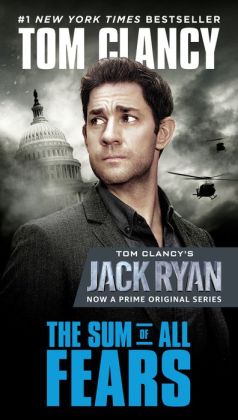 In action adventure types of stories, love and sex often gets skipped entirely, but even there I think it adds authenticity to the characters themselves. As the saying goes, “no man is an island.” A man or woman who lives life on the edge, as a spy, or a tier one soldier, or a swat team member, firefighter, or law enforcement officer, is more than just the job. He or she is someone’s husband or wife or sweetheart. And including how those relationships impact his or her life and actions, thoughts, emotions and decisions makes him or her a far more compelling character. Do we need to go into the bedroom with them and see them in the act? No. Not necessarily. But maybe a hint of that passion is not a bad thing either. In a recent Tom Clancy book I listened to on Audio one of his main characters became emotionally and eventually sexually involved with another character while on an undercover mission. What began as a cover story became real for that man and woman and when the woman was killed it impacted the man. I just finished the next book in that series and the loss of that woman he cared about is now part of his psyche – part of who he is and it impacts his decision making, adding tension and realism that wouldn’t be there if this author had chosen not to show him coming to care for the woman and making love to her only to lose her. In action adventure types of stories, love and sex often gets skipped entirely, but even there I think it adds authenticity to the characters themselves. As the saying goes, “no man is an island.” A man or woman who lives life on the edge, as a spy, or a tier one soldier, or a swat team member, firefighter, or law enforcement officer, is more than just the job. He or she is someone’s husband or wife or sweetheart. And including how those relationships impact his or her life and actions, thoughts, emotions and decisions makes him or her a far more compelling character. Do we need to go into the bedroom with them and see them in the act? No. Not necessarily. But maybe a hint of that passion is not a bad thing either. In a recent Tom Clancy book I listened to on Audio one of his main characters became emotionally and eventually sexually involved with another character while on an undercover mission. What began as a cover story became real for that man and woman and when the woman was killed it impacted the man. I just finished the next book in that series and the loss of that woman he cared about is now part of his psyche – part of who he is and it impacts his decision making, adding tension and realism that wouldn’t be there if this author had chosen not to show him coming to care for the woman and making love to her only to lose her.
@
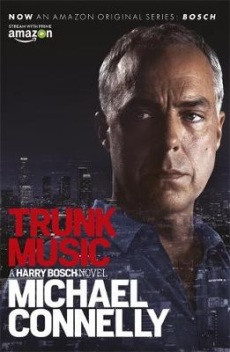 I love Jack Reacher stories, but even I have to admit there isn’t much about Jack that makes me care about him personally in most of the stories. Of course, I want him to triumph over the bad guys, but there’s very little character development to make me care about him. The Jack Reacher stories that stick with me, are the rare ones that show him in relationships: with Sgt Neagley (whose personal issues are more compelling than Reacher’s,) his father or brother. Too bad those stories are in the minority. And when Reacher has sex with a woman, it’s just about the sex, with no emotional involvement and I find that a waste of words. How much more compelling are Tom Clancy’s Jack Ryan, Michael Connelly’s Harry Bosch and W.E.B. Griffin’s Matt Payne, all of whom have issues with their bosses and love relationships that give them depth and make them captivating characters we not only care about while reading the book, but remember them long after we turn the last page. I love Jack Reacher stories, but even I have to admit there isn’t much about Jack that makes me care about him personally in most of the stories. Of course, I want him to triumph over the bad guys, but there’s very little character development to make me care about him. The Jack Reacher stories that stick with me, are the rare ones that show him in relationships: with Sgt Neagley (whose personal issues are more compelling than Reacher’s,) his father or brother. Too bad those stories are in the minority. And when Reacher has sex with a woman, it’s just about the sex, with no emotional involvement and I find that a waste of words. How much more compelling are Tom Clancy’s Jack Ryan, Michael Connelly’s Harry Bosch and W.E.B. Griffin’s Matt Payne, all of whom have issues with their bosses and love relationships that give them depth and make them captivating characters we not only care about while reading the book, but remember them long after we turn the last page.
@
 So, my conclusion as I’ve considered this question is that sex and love, are like the spice of life. Too much sugar and you have a Hallmark story that’s okay but not very memorable, or too much sex with no emotional context and it’s very close to porn and equally unmemorable. I want to have my characters find love whether they are involved in chasing bad guys or teaching kindergarten and I want to enjoy all the falling in love experience, including the sex. But a few drops of vanilla or a teaspoon of spice is all it takes to make a cookie scrumptious, not a whole cup. It’s the same with the books I read and the ones I write. So, my conclusion as I’ve considered this question is that sex and love, are like the spice of life. Too much sugar and you have a Hallmark story that’s okay but not very memorable, or too much sex with no emotional context and it’s very close to porn and equally unmemorable. I want to have my characters find love whether they are involved in chasing bad guys or teaching kindergarten and I want to enjoy all the falling in love experience, including the sex. But a few drops of vanilla or a teaspoon of spice is all it takes to make a cookie scrumptious, not a whole cup. It’s the same with the books I read and the ones I write.
@
 How about these other authors? How do they approach sex and love in their books? How about these other authors? How do they approach sex and love in their books?
@
Margaret Fieland
Victoria Chatham
Beverley Bateman
A.J. Maguire
Marci Baun
Dr. Bob Rich
Rhobin L Courtright
Diane Bator
Saturday, January 19 2019
This month's Round Robin Blog asks the question: How do you develop secondary characters? Do you have a favorite secondary character?
J ohn Donne put it best – No man is an island, therefore, I do my best to develop my secondary characters with the same care and detail as I do my protagonist, hero or heroine. Let’s face it, without these foils our main characters wouldn’t be nearly as compelling. Secondary characters can add humor, color and diversity and they bring out the best or the worst in our main characters. We learn a lot about our main characters from the way they interact with those around them, in the dialog and the way they treat others. Unless your guy or gal is Jack Reacher, you need these secondary folk to give your main character a life and a world to live in. ohn Donne put it best – No man is an island, therefore, I do my best to develop my secondary characters with the same care and detail as I do my protagonist, hero or heroine. Let’s face it, without these foils our main characters wouldn’t be nearly as compelling. Secondary characters can add humor, color and diversity and they bring out the best or the worst in our main characters. We learn a lot about our main characters from the way they interact with those around them, in the dialog and the way they treat others. Unless your guy or gal is Jack Reacher, you need these secondary folk to give your main character a life and a world to live in.
Consider Barnie Fife, Aunt Bea or Opie in Mayberry RFD. I don’t think we’ve ever seen where Fife lives, but the importance of his character is the contrast between him and Sheriff, Andy Taylor. Aunt Bea and Opie show an entirely different side of Andy Taylor, as a family-man and father. They all add humor and highlight the good qualities in Mayberry’s sheriff as well as helping to set the scene in small town America. Whoever wrote these characters put a lot of thought and care into creating them and that made the show successful in its original run and timeless re-runs.
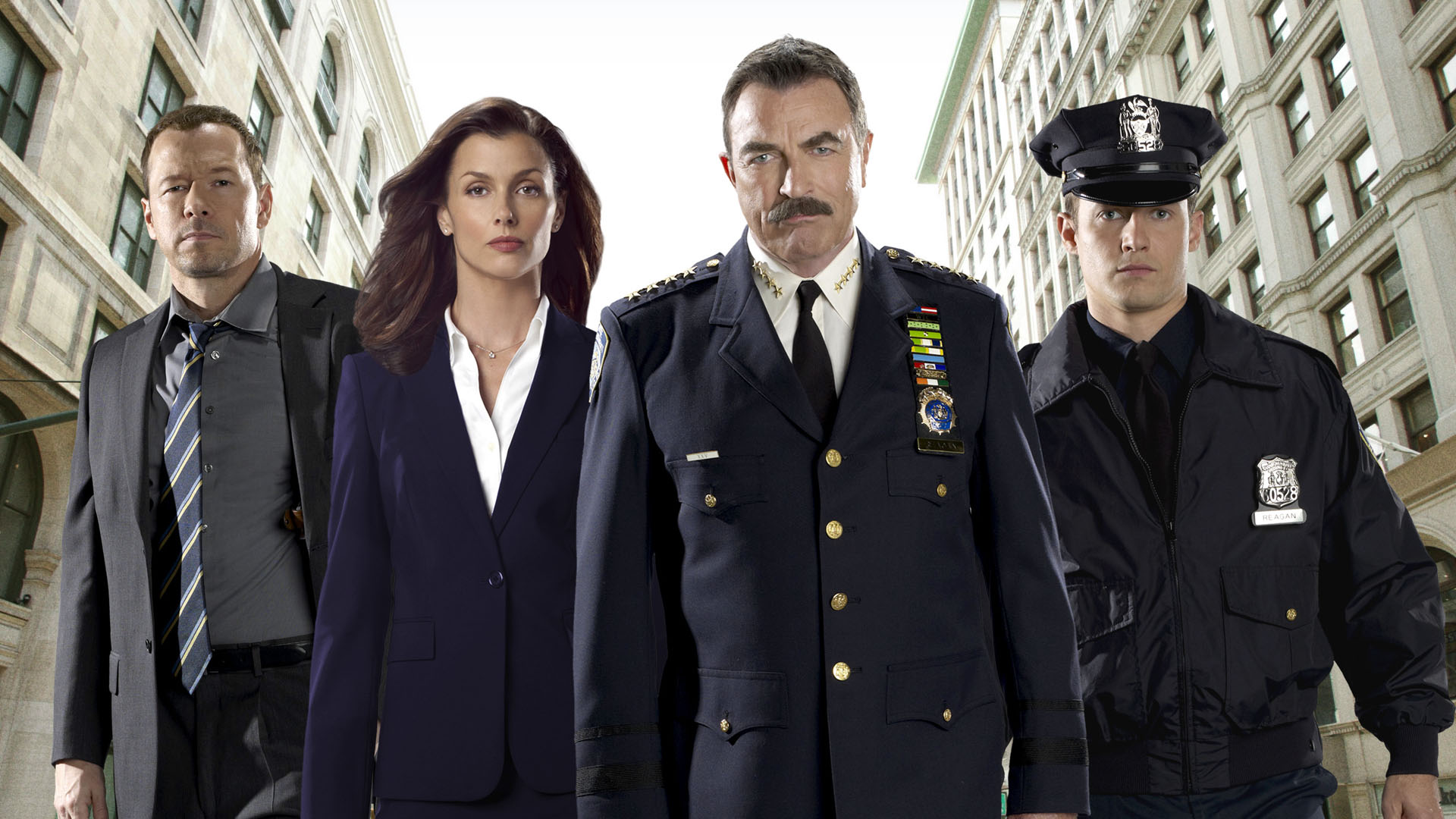 In a more current television example, (I’m deliberately using examples from television because they are far more visible and more familiar than books of which there are millions.) take the police drama, Blue Bloods. The main character is the NYC Police Chief, Frank Reagan, played by Tom Selleck. What defines him on the job are his supporting staff, Det. Abigail Baker, Public Affairs man, Garrett Moore and Sid Gormley, “a cop’s cop” who advises him. We don’t’ know nearly as much about these three characters as we do Frank Reagan, but without them the character of Frank as a leader in charge of a massive police department with all the political trappings that involves would be seriously lacking. Then there is Frank Reagan’s family which defines him in so many other ways: as a father who has already lost a son on the job, a man with two more sons who are also cops and a daughter who is often an adversary in the district attorney’s office. If the characters of Erin, Jamie and Danny weren’t carefully drawn they would not have the impact they do, nor would Frank’s character be as diverse, sympathetic or compelling. All these secondary characters are critical in making this a highly successful character-driven drama set against the background of life as a New York City Police family. In a more current television example, (I’m deliberately using examples from television because they are far more visible and more familiar than books of which there are millions.) take the police drama, Blue Bloods. The main character is the NYC Police Chief, Frank Reagan, played by Tom Selleck. What defines him on the job are his supporting staff, Det. Abigail Baker, Public Affairs man, Garrett Moore and Sid Gormley, “a cop’s cop” who advises him. We don’t’ know nearly as much about these three characters as we do Frank Reagan, but without them the character of Frank as a leader in charge of a massive police department with all the political trappings that involves would be seriously lacking. Then there is Frank Reagan’s family which defines him in so many other ways: as a father who has already lost a son on the job, a man with two more sons who are also cops and a daughter who is often an adversary in the district attorney’s office. If the characters of Erin, Jamie and Danny weren’t carefully drawn they would not have the impact they do, nor would Frank’s character be as diverse, sympathetic or compelling. All these secondary characters are critical in making this a highly successful character-driven drama set against the background of life as a New York City Police family.
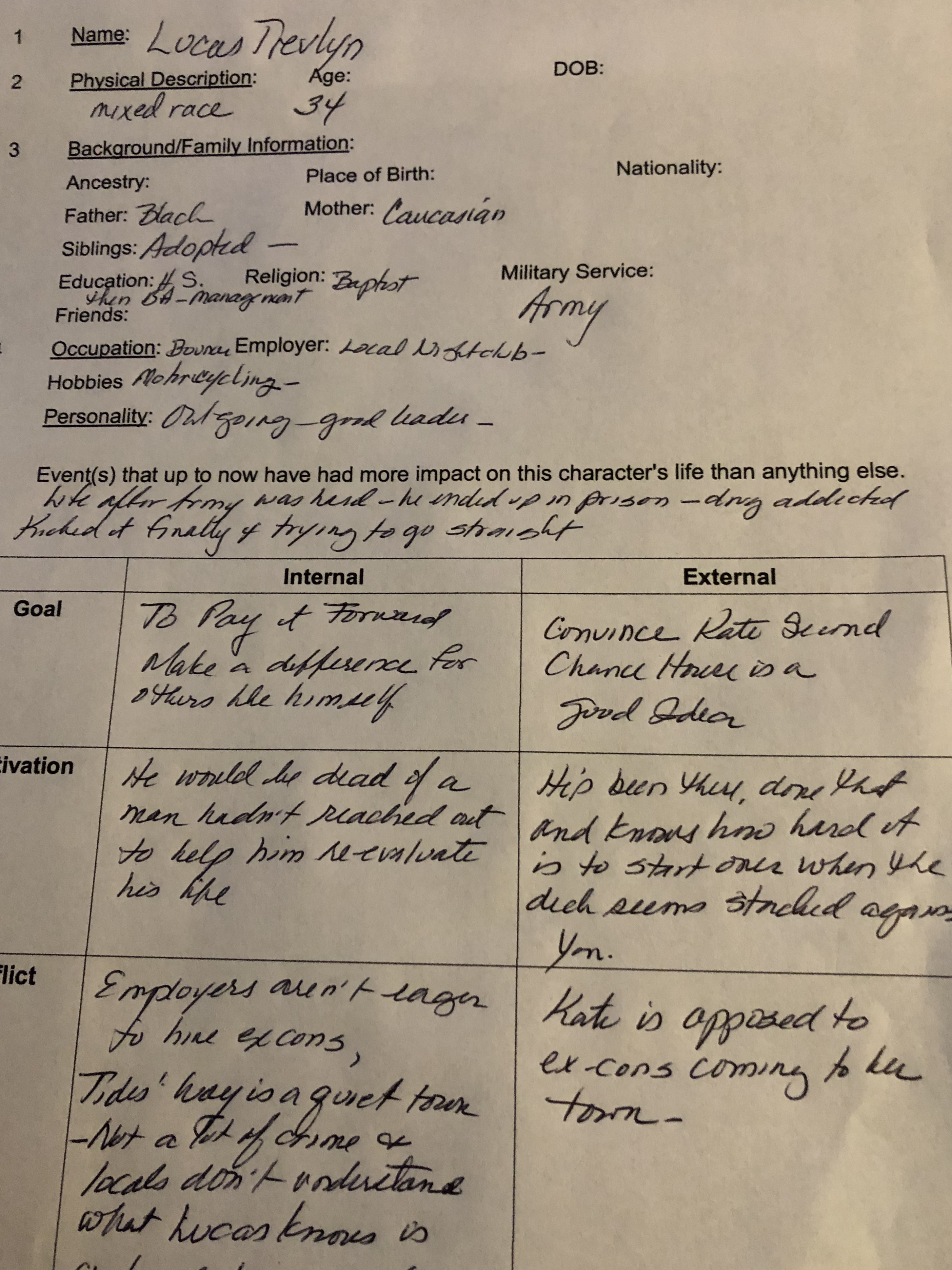 I don’t expect my secondary characters to ever achieve the notoriety of Danny Reagan or Barney Fife, but I want them to be just as compelling, as human, understandable, sympathetic and inspiring and I want them to help make my main characters larger than life, which means I need to be just as diligent in creating them as I am in creating the heroines, heroes and protagonists of my stories. I use the same goal/motivation/conflict chart for all my secondary characters that I use for my main characters because if they don’t have goals, I have no idea what drives them to be who they are. They all have backstories because that’s what informs the motivation for those goals and I need to know what their conflicts are, why they might be in sync with or in direct opposition to my main protagonist. Sometimes I need to give a secondary character habits or traits that conflict with my main character and the reasons can be anything from making the main character more believable, more driven or more sympathetic. Or maybe I just want the contrast to highlight them: for instance, being from another geographical area and trying to fit in to the current scene. Then I might use dialect, or habits well known from that area and easy to show the contrast. Sometimes it might be certain behaviors I want to showcase. If I want my main character to come across as cool, calm and capable no matter how dire the circumstances, it helps to have a s I don’t expect my secondary characters to ever achieve the notoriety of Danny Reagan or Barney Fife, but I want them to be just as compelling, as human, understandable, sympathetic and inspiring and I want them to help make my main characters larger than life, which means I need to be just as diligent in creating them as I am in creating the heroines, heroes and protagonists of my stories. I use the same goal/motivation/conflict chart for all my secondary characters that I use for my main characters because if they don’t have goals, I have no idea what drives them to be who they are. They all have backstories because that’s what informs the motivation for those goals and I need to know what their conflicts are, why they might be in sync with or in direct opposition to my main protagonist. Sometimes I need to give a secondary character habits or traits that conflict with my main character and the reasons can be anything from making the main character more believable, more driven or more sympathetic. Or maybe I just want the contrast to highlight them: for instance, being from another geographical area and trying to fit in to the current scene. Then I might use dialect, or habits well known from that area and easy to show the contrast. Sometimes it might be certain behaviors I want to showcase. If I want my main character to come across as cool, calm and capable no matter how dire the circumstances, it helps to have a s econdary character who exhibits the opposite, as does Barney Fife with Andy Taylor. If my main character is serious and intense, I might give him or her a sidekick with a quirky sense of humor who takes life far less seriously. I also have a list of interview questions I ask all my characters and the answers sometimes surprise me, but answering them helps me to know who they are, where they’re going, what they want, what they’re afraid of and ultimately what they are doing in my story. That interview includes questions like: How well do you get along with your siblings and why? What’s the darkest secret you don’t want others to know about you? Has anyone ever broken your heart? Or just, what’s your favorite music, color, food? econdary character who exhibits the opposite, as does Barney Fife with Andy Taylor. If my main character is serious and intense, I might give him or her a sidekick with a quirky sense of humor who takes life far less seriously. I also have a list of interview questions I ask all my characters and the answers sometimes surprise me, but answering them helps me to know who they are, where they’re going, what they want, what they’re afraid of and ultimately what they are doing in my story. That interview includes questions like: How well do you get along with your siblings and why? What’s the darkest secret you don’t want others to know about you? Has anyone ever broken your heart? Or just, what’s your favorite music, color, food?
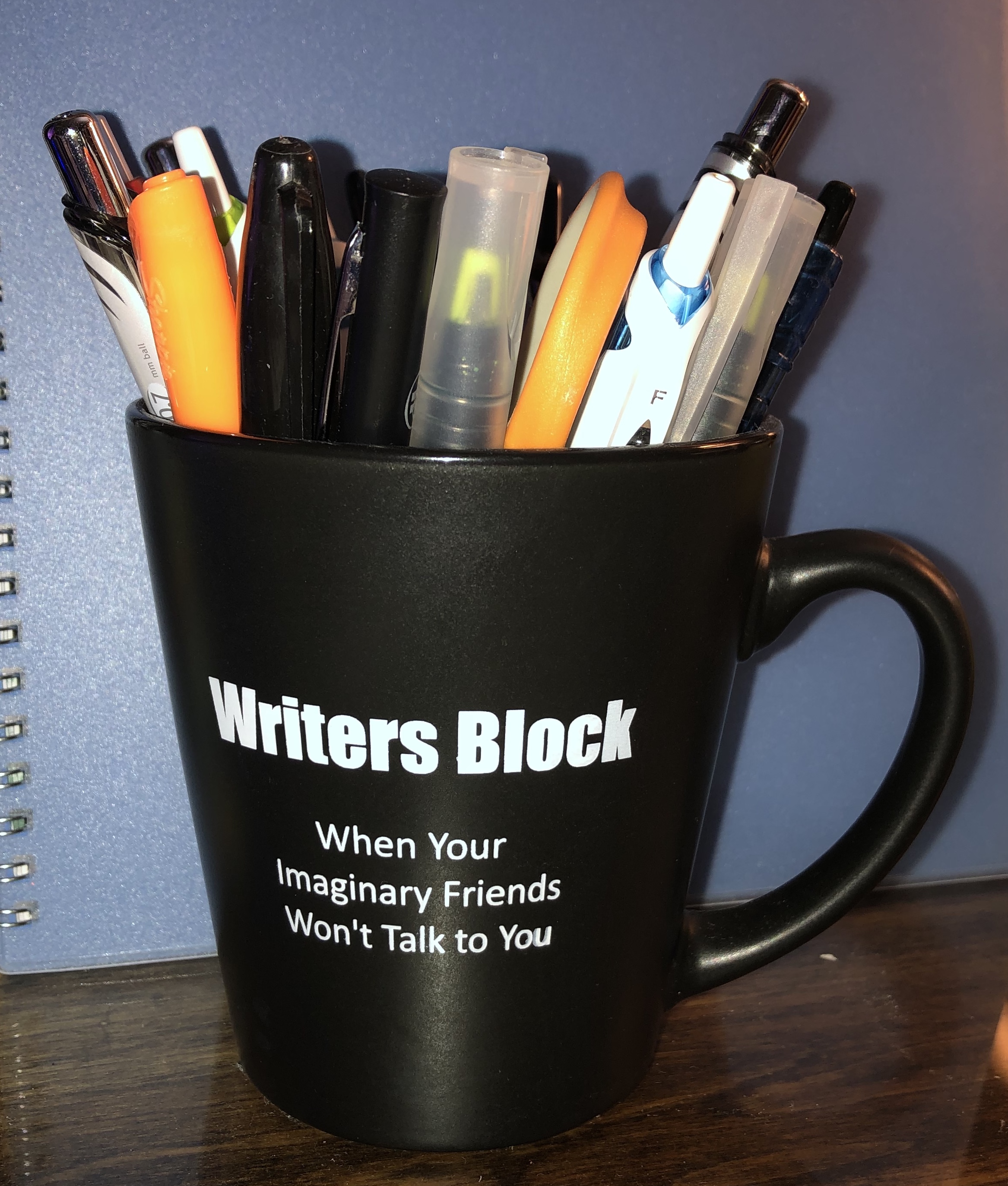 Secondary characters sometimes morph as the story unfolds and the author realizes he or she needs to have a reason for their protagonist to act or think the way they do. Or maybe it’s not morphing so much as revealing more about them than originally known. But I’m open to this change. I have a mug filled with pens on my desk that states Writer’s Block is when my imaginary friends won’t talk to you. But if you listen as the story unfolds, they often tell you a whole lot more than you would guess. Sometimes they argue with you about who they are and what they want. Sometimes they refuse to bend to your will, and very often they propose surprising and very satisfying outcomes. But they only do this if you’ve taken the time to create them as three dimensional, feeling, thinking, characters with loves, desires, fears and hang-ups of their own. Secondary characters sometimes morph as the story unfolds and the author realizes he or she needs to have a reason for their protagonist to act or think the way they do. Or maybe it’s not morphing so much as revealing more about them than originally known. But I’m open to this change. I have a mug filled with pens on my desk that states Writer’s Block is when my imaginary friends won’t talk to you. But if you listen as the story unfolds, they often tell you a whole lot more than you would guess. Sometimes they argue with you about who they are and what they want. Sometimes they refuse to bend to your will, and very often they propose surprising and very satisfying outcomes. But they only do this if you’ve taken the time to create them as three dimensional, feeling, thinking, characters with loves, desires, fears and hang-ups of their own.
 Of course, I have my favorites. How could I not if I’ve created living, breathing characters that waken interest and sympathy, first in me, and then hopefully in my readers? My current work in progress is a mystery and my main character is a female deputy detective. To bring Jesse Quinn to life, I’ve created family, a partner, a boss and friends. Then I decided she needed a love interest, even though she doesn’t think she needs a man in her life. I am particularly fond of this man I created for her and I’m looking forward to finding out more about Seth as the series unfolds. In book 5 of my contemporary romance series, a surprise character walked on-stage about two thirds of the way through. I realized immediately I needed him in the story and right away he began to make his personality felt. Lucas Trevlyn nearly wrote himself, and as the book was completed, I felt this compelling need to write his story. One day I’m sure I will because he’s still there in my heart and mind even though I’ve moved on to book 6 and a whole new mystery series as well. Of course, I have my favorites. How could I not if I’ve created living, breathing characters that waken interest and sympathy, first in me, and then hopefully in my readers? My current work in progress is a mystery and my main character is a female deputy detective. To bring Jesse Quinn to life, I’ve created family, a partner, a boss and friends. Then I decided she needed a love interest, even though she doesn’t think she needs a man in her life. I am particularly fond of this man I created for her and I’m looking forward to finding out more about Seth as the series unfolds. In book 5 of my contemporary romance series, a surprise character walked on-stage about two thirds of the way through. I realized immediately I needed him in the story and right away he began to make his personality felt. Lucas Trevlyn nearly wrote himself, and as the book was completed, I felt this compelling need to write his story. One day I’m sure I will because he’s still there in my heart and mind even though I’ve moved on to book 6 and a whole new mystery series as well.
Hop on over to find out what these other authors do to create memorable secondary characters and who their favorites might be:
 Margaret Fieland Margaret Fieland
Helena Fairfax
Dr. Bob Rich
Fiona McGier
Beverley Bateman
Connie Vines
Judith Copek
Rhobin L Courtright
Victoria Chatham
Saturday, December 15 2018
This past year we've been highlighting different aspects of our writing and things we've learned along the way, but this month we're sharing some of our writing itself. A Christmas Goose is a Christmas story, but it's also a story of second chances and healing. So, from me to you with wishes for a holiday filled with love, laughter and good cheer.
Christmas Goose - by Skye Taylor
 Jeff was late. Resentment, despair, and anger overcame my limited patience. I couldn’t take the holiday music and festive decorations a moment longer. Not when I was facing the worst Christmas of my life. Jeff was late. Resentment, despair, and anger overcame my limited patience. I couldn’t take the holiday music and festive decorations a moment longer. Not when I was facing the worst Christmas of my life.
I worked my way past a crowd of carolers just coming through the door. Fresh air felt good on my face and in my hair in spite of the dismal gray chill. The sudden quiet, broken only by distant traffic suited my mood. I felt alone and cut off from everything I had once been. All I really wanted was Julie.
Except, I’d said goodbye to Julie.
Not Goodbye, see you tomorrow, but goodbye, and have a nice life.
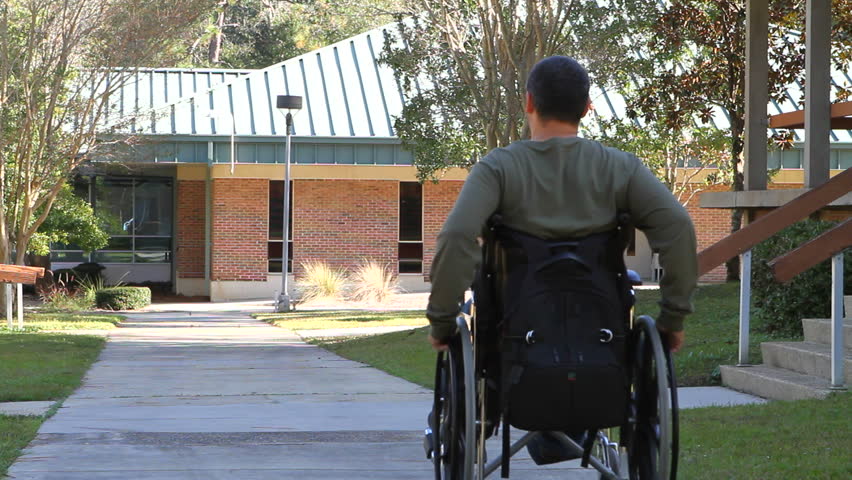 I jerked my chair onto the path we had traveled so many times during rehab. Me helpless in the chair. Julie pushing. I jerked my chair onto the path we had traveled so many times during rehab. Me helpless in the chair. Julie pushing.
Julie had been at my bedside when I finally regained consciousness. I don’t recall what I said to her, but it must have been pretty strange because she’d cracked up. I’d been in a drug-induced fog and hadn’t seen the tears mixed into her laughter.
She’d missed a whole semester of college to be at my side. But it was time to set her free. She didn’t need an anchor for the rest of her life. Julie loved to dance. I didn’t have legs to dance on. She dreamed of traveling to far-away places. I had trouble just making my way to the mailbox. Julie wanted kids. What if I could no longer give her even that? Julie deserved better than me.
Julie disagreed, but she hadn’t seen me struggling in rehab. She hadn’t seen me throw my specially-made prosthesis at the wall in frustrated anger. She hadn’t heard me screaming in pain. Or waking from a nightmare. She’d be better off if she never did.
My chair lurched to a stop when it left the paved path. I cursed and wrestled it forward. I hated my new reality. I’d been a track star in high school, excelling in high jump and hurdles. Now I’d never jump again and just getting out of bed was a hurdle.
Sweating and still cursing, I finally got myself down to the pond. When I’d asked Julie to bring me here three days ago, the sparkle in her eyes had told me she expected me to propose. Instead, I’d told her to take a hike.
All I’d ever considered being when I grew up was a cop. But in our family, military service came first. What kind of run-down police force hires a cripple? I had no idea how I was going to support myself for the next fifty years, never mind a wife and kids.
No reasons left to endure the desert my life had become. Julie had taken my heart with her, along with the sun and laughter and everything that had made the last few months bearable.
 I didn’t see the goose until my wheels crunched into a pile of dead leaves, and made her flinch. She eyed me with alarm and tried to move away, but a broken wing made escape impossible. We gazed at each other in shared misery. Then her attention turned elsewhere. I didn’t see the goose until my wheels crunched into a pile of dead leaves, and made her flinch. She eyed me with alarm and tried to move away, but a broken wing made escape impossible. We gazed at each other in shared misery. Then her attention turned elsewhere.
A gander glided gracefully in and landed between us. They should have flown south months ago, but clearly her injury had kept them grounded. Somewhere I’d read that geese mated for life. The faithful male made soft sounds in his throat while his mate ate the food he’d brought her. Apparently deciding I was no threat, he took a couple running steps and soared back into the air. A few minutes later he returned with another offering.
Did the gander know his mate would probably never fly again? Perhaps instinct told him she wouldn’t, but it hadn’t mattered. She was his mate and if she couldn’t go, then neither would he.
My eyes stung. Julie had shown me the same kind of faithfulness, but I had turned her away. I’d convinced myself it was for her good. I back-handed tears that escaped down my cheeks. I’d been so busy thinking of what I wanted and couldn’t have that I hadn’t listened to anything she said. Hadn’t considered what she wanted that I could still give her.
The gander returned once again. He folded his wings and settled in beside his mate. The two sat peacefully in the chilly December air, content in each other’s company.
I’d been so wrong. Julie and I shared something special. It had survived the crazy tumult of our teenage years. It had weathered the separation of Boot Camp and college. It had been strong enough to bring her rushing to my bedside the moment the Army had deposited me at Walter Reed. Maybe she hadn’t seen the worst of my temper, but she hadn’t flinched at the sight of my stumps.
The love I felt for that smart, funny, generous woman had been the center of my universe for almost half my life. We were meant to be life mates. Just like this gander and his goose.
I wiped my palms on my jeans, then gripped the wheels with determination. Maybe it wasn’t too late to admit what a jerk I’d been and fix what I’d broken.
***
 Jeff pulled up in front of Julie’s parent’s home. I’d picked her up here a thousand times and seen her run eagerly down the stairs to meet me. Now I prayed she’d even agree to see me. After the things I’d told her three days ago, I wouldn’t blame her if she sent her father to the door to send me packing. Jeff pulled up in front of Julie’s parent’s home. I’d picked her up here a thousand times and seen her run eagerly down the stairs to meet me. Now I prayed she’d even agree to see me. After the things I’d told her three days ago, I wouldn’t blame her if she sent her father to the door to send me packing.
Christmas candles winked in the windows and a wreath hung at the door. Then I noticed the newly built ramp. Raw, pressure-treated wood. A handrail at the appropriate height installed with the expectation that I’d be coming often and would want to manage on my own. Shame welled up in me.
Even Julie’s parents had accepted who I was now and had made adjustments. They could have wanted so much more for their only daughter.
Jeff opened the car door and unfolded my chair. I waved him away as I shifted myself from the car to the chair. If the Thomases still had faith in me, then I damned well wasn’t going to disappoint them.
Jeff squeezed my shoulder. “I’ll text before I leave to make sure you’re set.”
“Thanks.” I set the chair in motion.
As I neared the top of the ramp Julie’s dad appeared at the door. He held it open for me. “It’s about time you came to your senses, young man.”
“Yes, sir,” I agreed, pushing myself across the threshold.
Julie stood halfway down the staircase to the upper floor biting her lip. Her eyes looked puffy and raw. My heart contracted with guilt and the sudden fear at what her hesitation might mean.
Christmas music filtered in from the front room. I’ll be home for Christmas was playing, and I realized I was home. I’d finally come home to the only woman who could ever make my life feel whole again.
I was crying again, but I didn’t care. “I’m sorry,” I croaked. “I was wrong.”
Julie flew into motion, running down the remaining steps. She dropped to her knees and flung her arms about my neck. I heard the door to the kitchen close softly as her father left us alone.
I hugged her close for a long time, then gently pushed her away. I dug in my jacket pocket for the ring Jeff had obligingly stopped at the jewelers for.
“I’d get down on my knees, but I’m afraid I might not be able to get back up,” I began lamely.
“Yes!” she shouted before I even had a chance to pop the question. “Yes, yes, yes! This is the best Christmas of my whole life. I love you so much.” Her voice rose on the last word as tears spilled out of her beautiful brown eyes.
My hand shook as I pushed the ring onto her finger. It was turning out to be the best Christmas of my life, too. Barely registering the pain, I pulled her onto my lap and kissed her. I poured everything I was feeling into it, hoping she would know how very much I loved her, because I didn’t trust my voice at all.
***
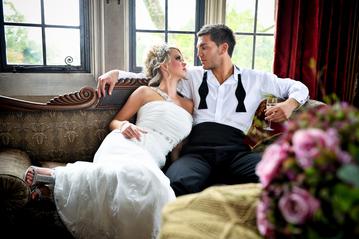 I don’t know how Julie’s mom pulled it together, but eight days later, on Christmas Eve, surrounded by our families and friends and a zillion flickering candles, Julie became my wife. My soul-mate, my friend, my lover for as long as we both shall live. As we sat together in Julie’s living room, holding hands and accepting congratulations, I spied a new ornament on her tree. Two gray geese, their necks forming a heart with a holiday wreath encircling them both. I don’t know how Julie’s mom pulled it together, but eight days later, on Christmas Eve, surrounded by our families and friends and a zillion flickering candles, Julie became my wife. My soul-mate, my friend, my lover for as long as we both shall live. As we sat together in Julie’s living room, holding hands and accepting congratulations, I spied a new ornament on her tree. Two gray geese, their necks forming a heart with a holiday wreath encircling them both.
I pulled Julie closer. “Merry Christmas, little goose,” I whispered into her ear. “Merry Christmas forever.”
Now it's time to visit the other Round Robin blogs and have a taste of their writing and holiday cheer. As another bonus - here's another of my Christmas stories you might enjoy - Santa's Helper
 Helena Fairfax Helena Fairfax
Beverley Bateman
Anne Stenhouse
A.J. Maguire
Fiona McGier
Connie Vines
Diane Bator
Dr. Bob Rich
Victoria Chatham
Rhobin L Courtright
Saturday, November 17 2018
 This month's Round Robin Blog topic is: How has writing rewarded you? What has it cost? I’m going to answer these two questions in reverse because most us of like to have the bad news first so the good news sounds that much better. This month's Round Robin Blog topic is: How has writing rewarded you? What has it cost? I’m going to answer these two questions in reverse because most us of like to have the bad news first so the good news sounds that much better.
@
What has writing cost? Beyond the obvious in dollars & cents and time & effort for promotion of me as an author and marketing for each book as it comes out, there are costs that those who don’t write will never guess at. To start with is the angst over the questions, Am I good enough? Have I got anything others will want to read? What if I can’t finish what I start? What if I do finish and no one wants my book? my book? my book?
@@@@
Then there’s the loneliness of being a writer. It is a very solitary thing to be sitting at your desk with nothing but a computer and your notes to keep you company as you turn your idea into reality. Writing can cost time away from family and friends. It sometimes costs you sleep. It cuts into time for exercise and meals and nights on the town, and even when you are off doing other things, in the back of your mind is the nagging thought, I should be writing!
@@
 But finally, after all that sacrifice and time, you type THE END. Except that’s not the end. It’s only your first draft. Now you have to go back and edit. Often cutting brilliant little snatches of dialog or a scene you loved because on review, you realize it doesn’t push the story forward, or even drags the reader out of the story. Cutting up your baby costs! But finally, after all that sacrifice and time, you type THE END. Except that’s not the end. It’s only your first draft. Now you have to go back and edit. Often cutting brilliant little snatches of dialog or a scene you loved because on review, you realize it doesn’t push the story forward, or even drags the reader out of the story. Cutting up your baby costs!
@
Then, after three or four, or maybe even a dozen revisions, you’re ready to send your manuscript out into the world. As  eager as any writer, especially a new writer, is to see their baby in print - in the hands of eager readers, now you must brace for rejections. Every writer, even those on the best-seller lists has a file full of rejections. Occasionally there might be a helpful comment for future submissions, but most will just say, sorry, it doesn’t fit our line, and good luck somewhere else which is totally discouraging and not at all helpful. Even when a publisher does contract your book and it’s out there, readers can be merciless with criticism. This is your baby – the story of your heart you’ve worked so hard to create. Rejection and eager as any writer, especially a new writer, is to see their baby in print - in the hands of eager readers, now you must brace for rejections. Every writer, even those on the best-seller lists has a file full of rejections. Occasionally there might be a helpful comment for future submissions, but most will just say, sorry, it doesn’t fit our line, and good luck somewhere else which is totally discouraging and not at all helpful. Even when a publisher does contract your book and it’s out there, readers can be merciless with criticism. This is your baby – the story of your heart you’ve worked so hard to create. Rejection and 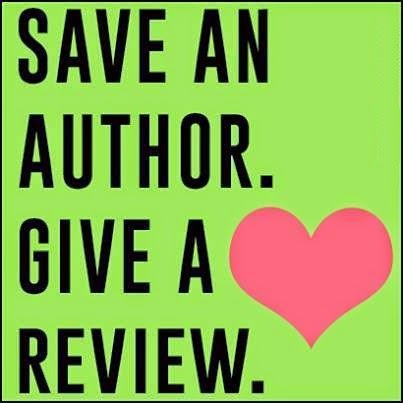 criticism hurts. But a good writer, an author with a will to write the best books ever will take those comments and grow. Their next book will be better. And the next better than the last. But there are those growing pains. Even once you have a book published, getting reviews, even from readers who say they loved your book, can be like herding cats: a frustrating, disappointing, seemingly impossible task made even more dispiriting by the reality that it takes reviews to get your book noticed where it counts. criticism hurts. But a good writer, an author with a will to write the best books ever will take those comments and grow. Their next book will be better. And the next better than the last. But there are those growing pains. Even once you have a book published, getting reviews, even from readers who say they loved your book, can be like herding cats: a frustrating, disappointing, seemingly impossible task made even more dispiriting by the reality that it takes reviews to get your book noticed where it counts.
@
And that’s what being a writer costs.
@
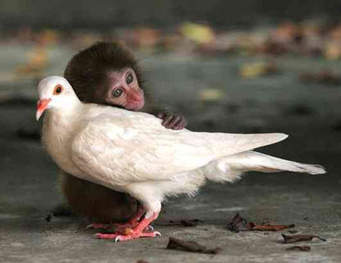 But the rewards? Those can be sweet indeed and many are unexpected. The first reward a new writer discovers are the friendships one makes with other writers, people you would probably never have met had you not been trying to write a book. You discover how generous established writers are with their hard-won knowledge – rather than being competitive, most of them are willing to help out newbies and pass along valuable tips and helpful guides. You might join writing chapters and find more ideas than you ever imagined at meetings and workshops. If you join a critique group or brainstorming group, you discover new depths and directions for your own ideas. Your plot becomes stronger, weaknesses get fixed and holes plugged. And even better, you go home from these kind of meetings filled with energy and eagerness to get back to your current work in progress. But the rewards? Those can be sweet indeed and many are unexpected. The first reward a new writer discovers are the friendships one makes with other writers, people you would probably never have met had you not been trying to write a book. You discover how generous established writers are with their hard-won knowledge – rather than being competitive, most of them are willing to help out newbies and pass along valuable tips and helpful guides. You might join writing chapters and find more ideas than you ever imagined at meetings and workshops. If you join a critique group or brainstorming group, you discover new depths and directions for your own ideas. Your plot becomes stronger, weaknesses get fixed and holes plugged. And even better, you go home from these kind of meetings filled with energy and eagerness to get back to your current work in progress.
@
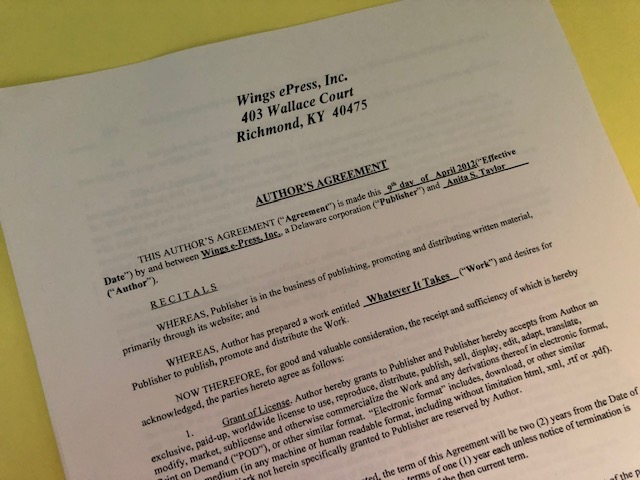 The next reward is the letter or email from the agent or editor you submitted your query to asking for the full manuscript. But even bigger is the one offering the contract. Depends on your makeup, but some writers find themselves crying when they get this very first contract. Some jump up wanting to shout out to anyone close enough to hear that they’ve sold their book. Call their best friend, everyone in their writer’s group, text their spouse or their kids or parents. This is a huge, euphoric moment. You’ve sold your book! The next reward is the letter or email from the agent or editor you submitted your query to asking for the full manuscript. But even bigger is the one offering the contract. Depends on your makeup, but some writers find themselves crying when they get this very first contract. Some jump up wanting to shout out to anyone close enough to hear that they’ve sold their book. Call their best friend, everyone in their writer’s group, text their spouse or their kids or parents. This is a huge, euphoric moment. You’ve sold your book!
@
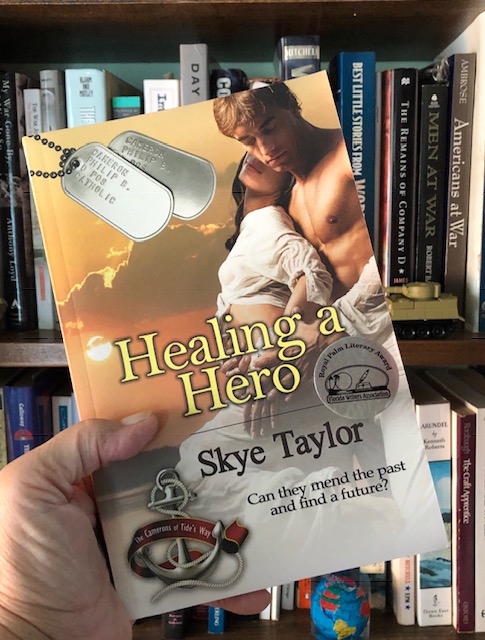 As the publishing process progresses there are more wonderful moments of reward, like the day the cover design arrives, and a release date is set. Another reward is holding that book in printed form in your hand, seeing your name on the cover and realizing you actually did it. You’ve created this wonderful story that others can hold in their hands, or read on their e-readers and enjoy. As the publishing process progresses there are more wonderful moments of reward, like the day the cover design arrives, and a release date is set. Another reward is holding that book in printed form in your hand, seeing your name on the cover and realizing you actually did it. You’ve created this wonderful story that others can hold in their hands, or read on their e-readers and enjoy.
@
Now you are a published author. You discover readers who love your books and can’t wait for the next one, which gives you an enormous boost of energy as you start in on the process all over again. That’s an amazingly rewarding feeling. 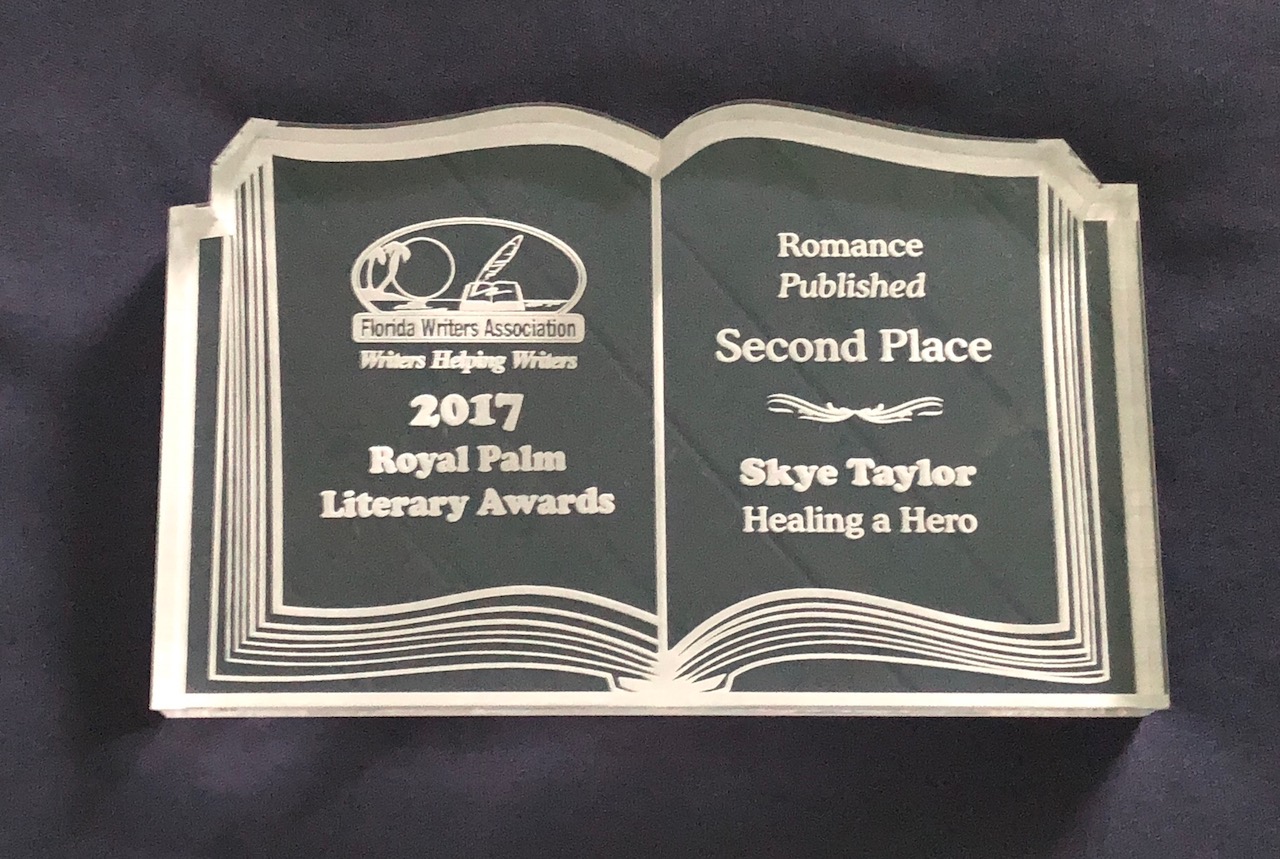 Most writers enter their books in contests from time to time and when you become a finalist there’s another endorsement that you are really a writer. And when your baby places or wins, you get to put that award on your shelf where you see it often. Validation! You’ve arrived! Your dream is real. All that work, angst and disappointment along the way – the reward is sweet indeed. Most writers enter their books in contests from time to time and when you become a finalist there’s another endorsement that you are really a writer. And when your baby places or wins, you get to put that award on your shelf where you see it often. Validation! You’ve arrived! Your dream is real. All that work, angst and disappointment along the way – the reward is sweet indeed.
@
Take a trip to these other sites to find out what costs and rewards these other writers have found:
Judith Copek
Beverley Bateman
A.J. Maguire
Fiona McGier
Dr. Bob Rich
Connie Vines
Diane Bator
Victoria Chatham
Rhobin L Courtright
Saturday, October 20 2018
 Remember back in science class when you very carefully filled a beaker with water slowing to drip by drip as the beaker filled? The goal was to see the actual water level stop above the rim of the beaker without spilling out. That is surface tension – that hidden force that keeps the water molecules adhered to each other even when the container isn’t there to hold it in. For a writer, the skill of keeping that exact balance of tension is what makes for a great reading experience. Before the days of pause and rewind on our televisions, we all had moments when we desperately needed to use the bathroom or were salivating for a snack, but the tension in the program we were watching kept us glued to our seats until the ads came on. That carefully constructed tension is great writing. It’s what keeps readers or watchers coming back for more. Remember back in science class when you very carefully filled a beaker with water slowing to drip by drip as the beaker filled? The goal was to see the actual water level stop above the rim of the beaker without spilling out. That is surface tension – that hidden force that keeps the water molecules adhered to each other even when the container isn’t there to hold it in. For a writer, the skill of keeping that exact balance of tension is what makes for a great reading experience. Before the days of pause and rewind on our televisions, we all had moments when we desperately needed to use the bathroom or were salivating for a snack, but the tension in the program we were watching kept us glued to our seats until the ads came on. That carefully constructed tension is great writing. It’s what keeps readers or watchers coming back for more.
A
 Of course, in real life we all need a break now and then. If life was all tension with no opportunities to let things overflow a bit we’d wear ourselves out. But for an author, if you give the reader that break, they won't become inextricably involved in the story. If there is no tension or very little tension at all, then they’ll probably toss the book aside permanently and likely never consider buying another from that author. Of course, in real life we all need a break now and then. If life was all tension with no opportunities to let things overflow a bit we’d wear ourselves out. But for an author, if you give the reader that break, they won't become inextricably involved in the story. If there is no tension or very little tension at all, then they’ll probably toss the book aside permanently and likely never consider buying another from that author.
A
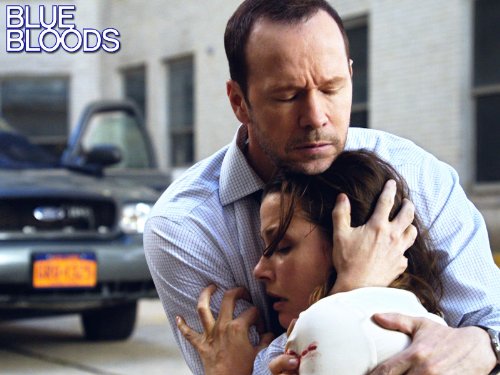 But how to keep that careful balance? One thing the careful author does is keep the end in sight – how is this book going to end and what little bits of information or tension here in the middle will heighten that ending and make it more satisfactory? One example might be a hero who never cries. He’s a tough as they come, baked in the streets, detective who’s seen it all. As he moves through your story, he sees things that would make most of us tear up if not break down and bawl, but he’s gritting his teeth and maintaining his stoic front. Yet, what is that doing inside of his head? A good author lets the reader see how the tension of each insult to his humanity begins to unravel his composure. Sometimes the straw that breaks the camel’s back comes suddenly and takes both the character and the reader off guard. Sometimes it just builds, bit by bit, until that careful control slips, maybe just a bit. But in either case, this man is suddenly someone we want to reach out to, to hug and tell him it’s okay to cry. And all that tension leading up to that moment is how the author keeps the reader glued to the story. So being pulled into the character's head and heart, making the reader feel like he or she is part of the story, not only adds tension because now the reader feels what the character is feeling, but he or she is anxious to know how this is going to get fixed. But how to keep that careful balance? One thing the careful author does is keep the end in sight – how is this book going to end and what little bits of information or tension here in the middle will heighten that ending and make it more satisfactory? One example might be a hero who never cries. He’s a tough as they come, baked in the streets, detective who’s seen it all. As he moves through your story, he sees things that would make most of us tear up if not break down and bawl, but he’s gritting his teeth and maintaining his stoic front. Yet, what is that doing inside of his head? A good author lets the reader see how the tension of each insult to his humanity begins to unravel his composure. Sometimes the straw that breaks the camel’s back comes suddenly and takes both the character and the reader off guard. Sometimes it just builds, bit by bit, until that careful control slips, maybe just a bit. But in either case, this man is suddenly someone we want to reach out to, to hug and tell him it’s okay to cry. And all that tension leading up to that moment is how the author keeps the reader glued to the story. So being pulled into the character's head and heart, making the reader feel like he or she is part of the story, not only adds tension because now the reader feels what the character is feeling, but he or she is anxious to know how this is going to get fixed.
A
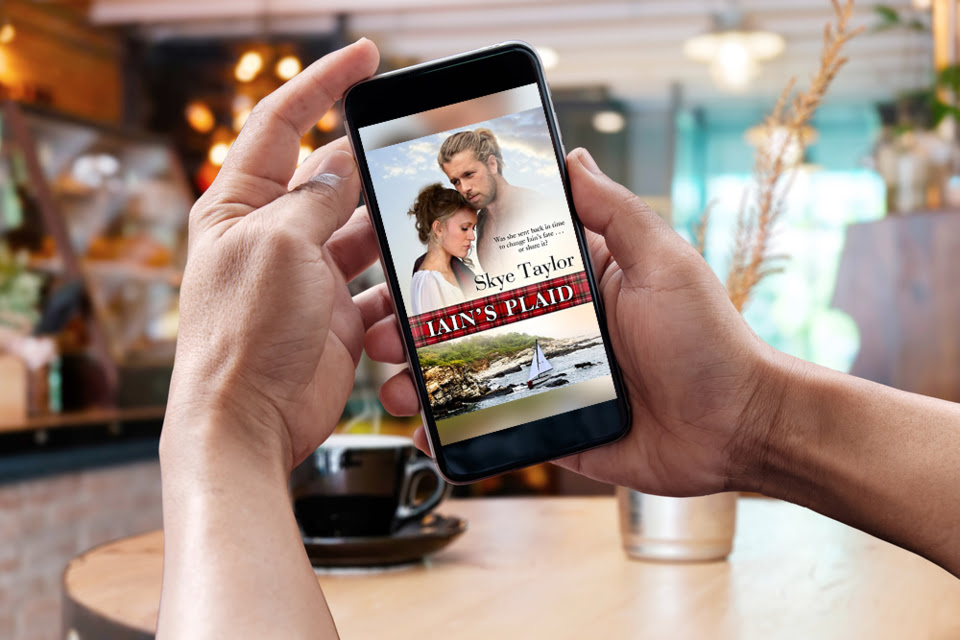 In my book, Iain’s Plaid, the tension for my heroine, who has been thrown back in time a couple hundred years, is first to figure out where she is, then why or how she got there, but very soon she realizes that she has ended up in the basement of a man who was considered a hero to many in the lead-up to the Revolutionary War, but due to her studies in American history, she knows he will suddenly disappear and no one knew what happened to him. About the same time she figures out how she might get back to her own time, the idea comes into her head that perhaps she was tossed back in time to save him from whatever fate had befallen him. But she still doesn’t know exactly what that fate was. As the story unfolds the reader meets new characters, some are adversaries, some are friends, but maybe one or more of them are the cause of his disappearance. It happens to be a romance and eventually she realizes she is in love with this man, which only adds to the tension when things happen that she is either directly or indirectly the cause of. Maybe she’s what happened to him. Her very unnatural presence in his time might be his undoing. Should she go home? If she can? But what if it’s not? What if the cousin he loves, who happens to be a British soldier is going to betray him? Or what if she’s still not discovered who will betray him? Maybe she should stay and see the task through. In my book, Iain’s Plaid, the tension for my heroine, who has been thrown back in time a couple hundred years, is first to figure out where she is, then why or how she got there, but very soon she realizes that she has ended up in the basement of a man who was considered a hero to many in the lead-up to the Revolutionary War, but due to her studies in American history, she knows he will suddenly disappear and no one knew what happened to him. About the same time she figures out how she might get back to her own time, the idea comes into her head that perhaps she was tossed back in time to save him from whatever fate had befallen him. But she still doesn’t know exactly what that fate was. As the story unfolds the reader meets new characters, some are adversaries, some are friends, but maybe one or more of them are the cause of his disappearance. It happens to be a romance and eventually she realizes she is in love with this man, which only adds to the tension when things happen that she is either directly or indirectly the cause of. Maybe she’s what happened to him. Her very unnatural presence in his time might be his undoing. Should she go home? If she can? But what if it’s not? What if the cousin he loves, who happens to be a British soldier is going to betray him? Or what if she’s still not discovered who will betray him? Maybe she should stay and see the task through.
A
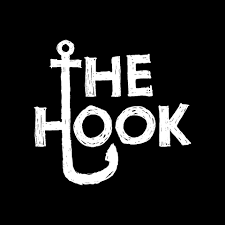 Another way an author adds tension is to leave the reader with questions that he or she desperately wants answered. We’ve all heard about the “hook.” We must have a hook in the blurb, in the cover quote, in the first sentence or before the end of the first page and definitely at the end of the first chapter. Actually, at the end of every chapter. When I reader comes to a break in the tension, that’s when they are likely to put the book down so a clever author finds a way to end every chapter with a question that leaves the reader thinking, “just one more chapter – then I’ll go to bed, or get up and start the laundry.” Once upon a time all television shows ended with all the conflicts for that particular segment neatly tied up and solved. But now with hundreds of programs vying for our attention, this isn’t always the case. Especially at the end of a season, some of the TV series now have someone important in jeopardy leaving all the faithful viewers waiting anxiously for Another way an author adds tension is to leave the reader with questions that he or she desperately wants answered. We’ve all heard about the “hook.” We must have a hook in the blurb, in the cover quote, in the first sentence or before the end of the first page and definitely at the end of the first chapter. Actually, at the end of every chapter. When I reader comes to a break in the tension, that’s when they are likely to put the book down so a clever author finds a way to end every chapter with a question that leaves the reader thinking, “just one more chapter – then I’ll go to bed, or get up and start the laundry.” Once upon a time all television shows ended with all the conflicts for that particular segment neatly tied up and solved. But now with hundreds of programs vying for our attention, this isn’t always the case. Especially at the end of a season, some of the TV series now have someone important in jeopardy leaving all the faithful viewers waiting anxiously for 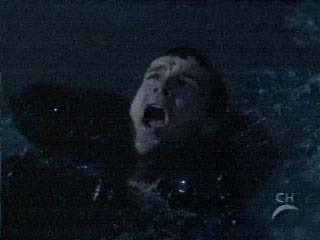 fall to come and the show to resume so they can find out what happened, where is this important character? Did they survive? How will the story go on if he didn’t? I recall one of the first of these that ramped up my anxiety level was a season finale of JAG where Harmon Rabb was bobbing in very angry ocean in a life raft after his fighter jet ditched in a storm and the Navy calling off the search because conditions had worsened to make it unsafe for the sailors to stay out looking for him. Last spring the director of N.C.I.S. was being held prisoner in some God-awful place, beaten and tortured, while all the fans waited through four long months to find out if he would be saved. fall to come and the show to resume so they can find out what happened, where is this important character? Did they survive? How will the story go on if he didn’t? I recall one of the first of these that ramped up my anxiety level was a season finale of JAG where Harmon Rabb was bobbing in very angry ocean in a life raft after his fighter jet ditched in a storm and the Navy calling off the search because conditions had worsened to make it unsafe for the sailors to stay out looking for him. Last spring the director of N.C.I.S. was being held prisoner in some God-awful place, beaten and tortured, while all the fans waited through four long months to find out if he would be saved.
A
 So, tension is important to keeping the reader coming back. It’s important to making a story interesting. Just think how dull it would be if there was NO tension? Consider the early readers some of us older folk had in first grade, “See Spot run. See Sally run. See Sally chase Spot.” God only knows how any of us stayed engaged long enough to learn how to read because there was absolutely nothing compelling about the story. Today’s young readers are treated to so much more interesting fare as they learn how to conquer the world of words. Think of How the Grinch Stole Christmas – and the spirit of Whoville. Not only was there tension throughout the story, from the heavy antlers tied onto the dog’s unwilling head, to the stealing of everything that was Christmas, but there was a lesson to be learned. That Christmas isn’t about things, it’s about love and celebration, and caring. And it’s become a classic both in book form and on TV. So, tension is important to keeping the reader coming back. It’s important to making a story interesting. Just think how dull it would be if there was NO tension? Consider the early readers some of us older folk had in first grade, “See Spot run. See Sally run. See Sally chase Spot.” God only knows how any of us stayed engaged long enough to learn how to read because there was absolutely nothing compelling about the story. Today’s young readers are treated to so much more interesting fare as they learn how to conquer the world of words. Think of How the Grinch Stole Christmas – and the spirit of Whoville. Not only was there tension throughout the story, from the heavy antlers tied onto the dog’s unwilling head, to the stealing of everything that was Christmas, but there was a lesson to be learned. That Christmas isn’t about things, it’s about love and celebration, and caring. And it’s become a classic both in book form and on TV.
A
So, I’ve told you a little about what tension is and how it drives the reader on. I’ve also shared some of my techniques for keeping the tension going. Now you can hop on over to find out how these other great authors keep tension going in their stories.
A
 Beverley Bateman Beverley Bateman
Anne Stenhouse
A.J. Maguire
Dr. Bob Rich
Helena Fairfax
Diane Bator
Judith Copek
Rhobin L Courtright
|